AP US History Period 2, APUSH PERIOD 2
1/94
There's no tags or description
Looks like no tags are added yet.
Name | Mastery | Learn | Test | Matching | Spaced | Call with Kai |
|---|
No analytics yet
Send a link to your students to track their progress
95 Terms
Cecil Calvert, Second Lord Baltimore
In 1634, Cecil Calvert (Second Lord Baltimore) created Maryland colony that would be a haven for Catholics in America.
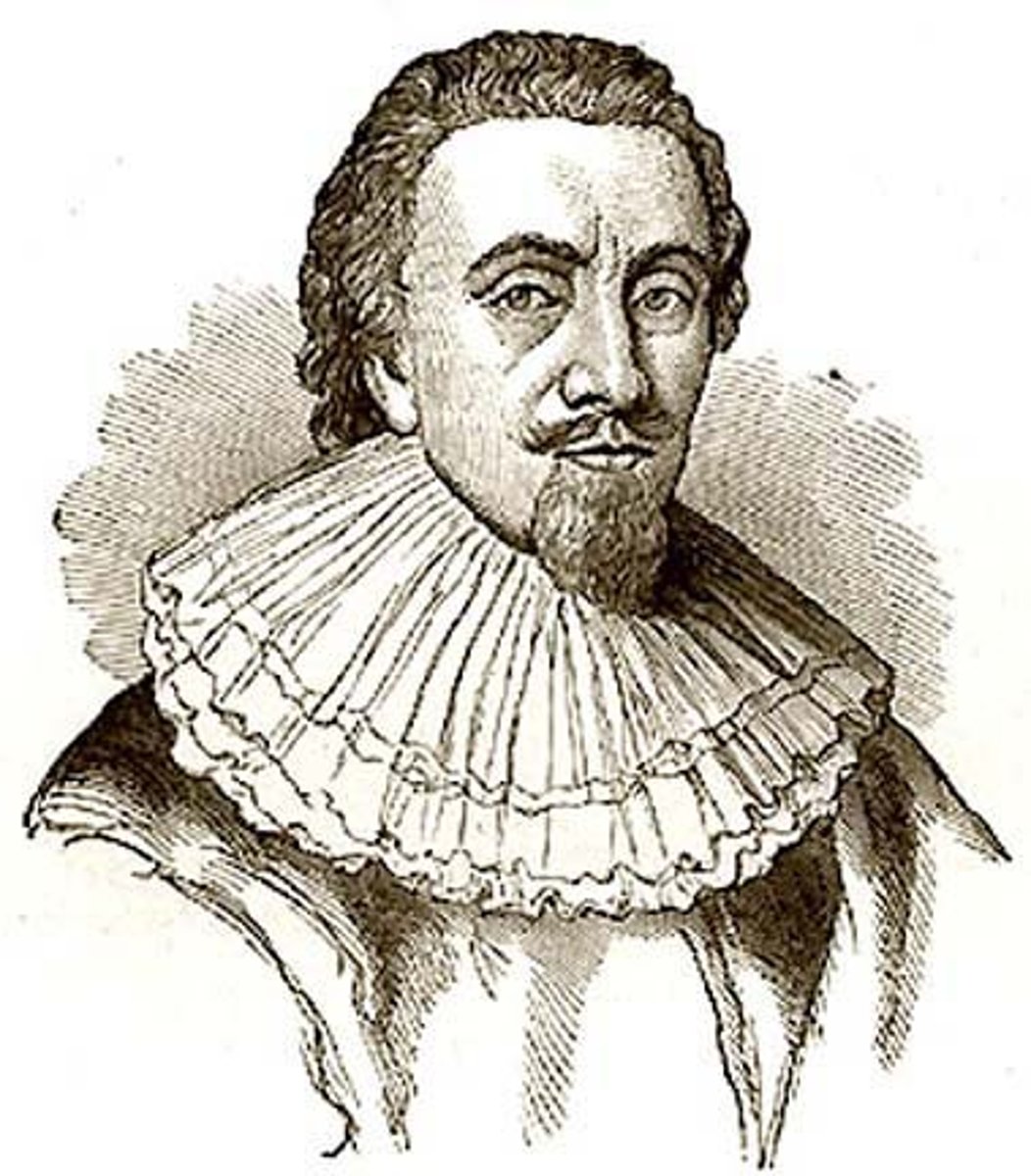
Act of Toleration
The first colonial statue granting religious freedom to all Christians, but it called for death of all non-Christians. It was created to provide a safe haven for Catholics. (p.27)
Roger Williams
A respected Puritan minister who believed that the individual's conscience was beyond the control of any civil or church authority. He was banished from the Bay colony for his beliefs. In 1636, he founded the settlement of Providence. (p. 29)
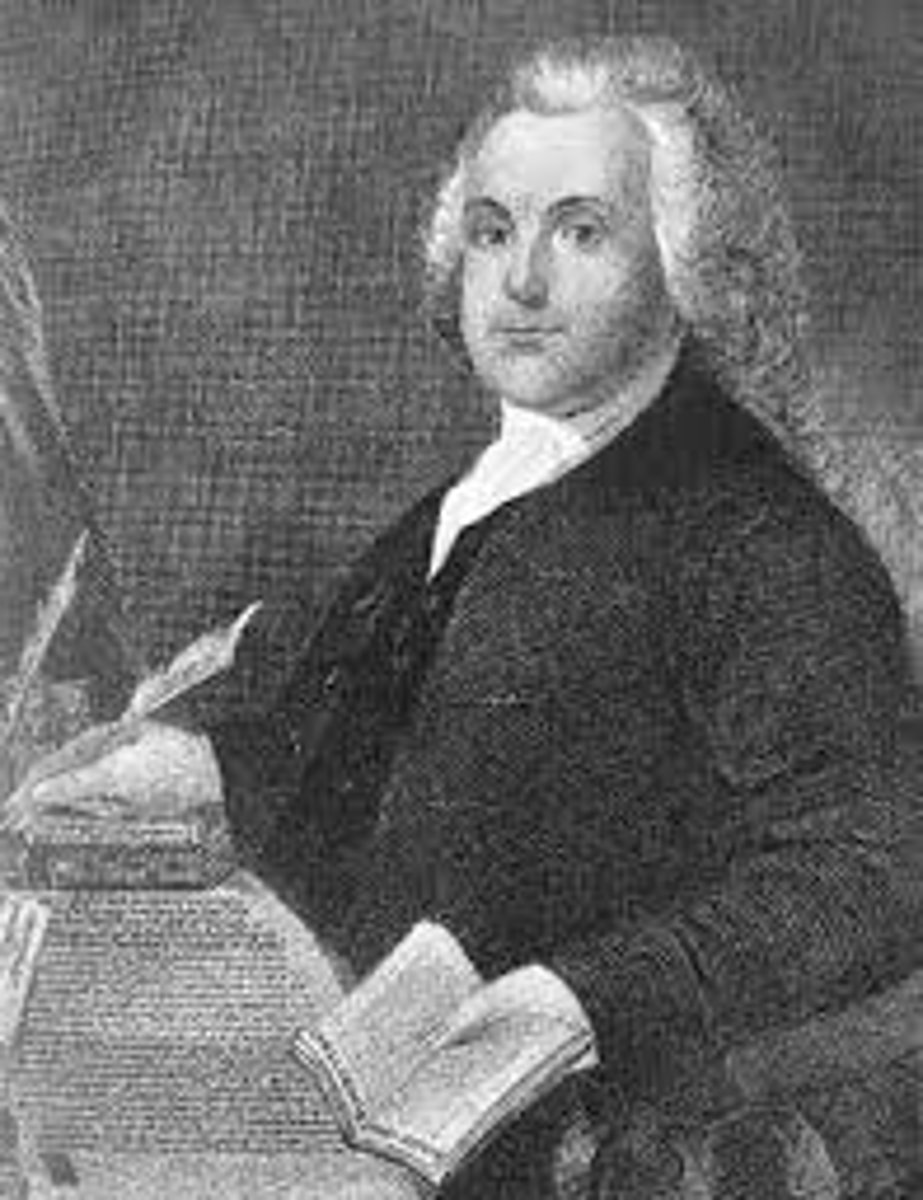
Providence
This settlement has founded in 1636 by Roger Williams. (p. 29)
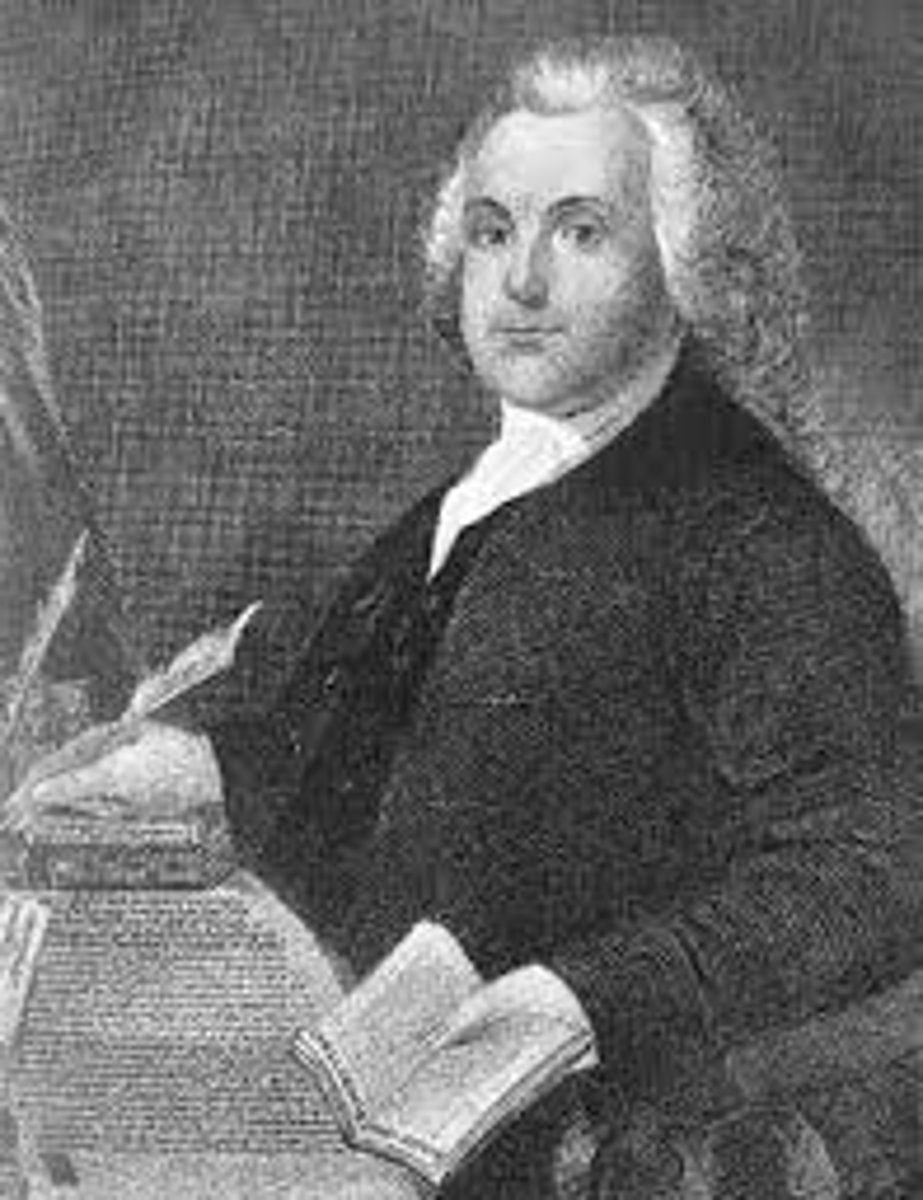
Anne Hutchinson
This Puritan believed in antinomianism and was banished from the Bay colony because of her beliefs. In 1638, she founded the colony of Portsmouth. (p. 29)
antinomianism
The idea that faith alone, not deeds, is necessary for salvation. (p. 29)
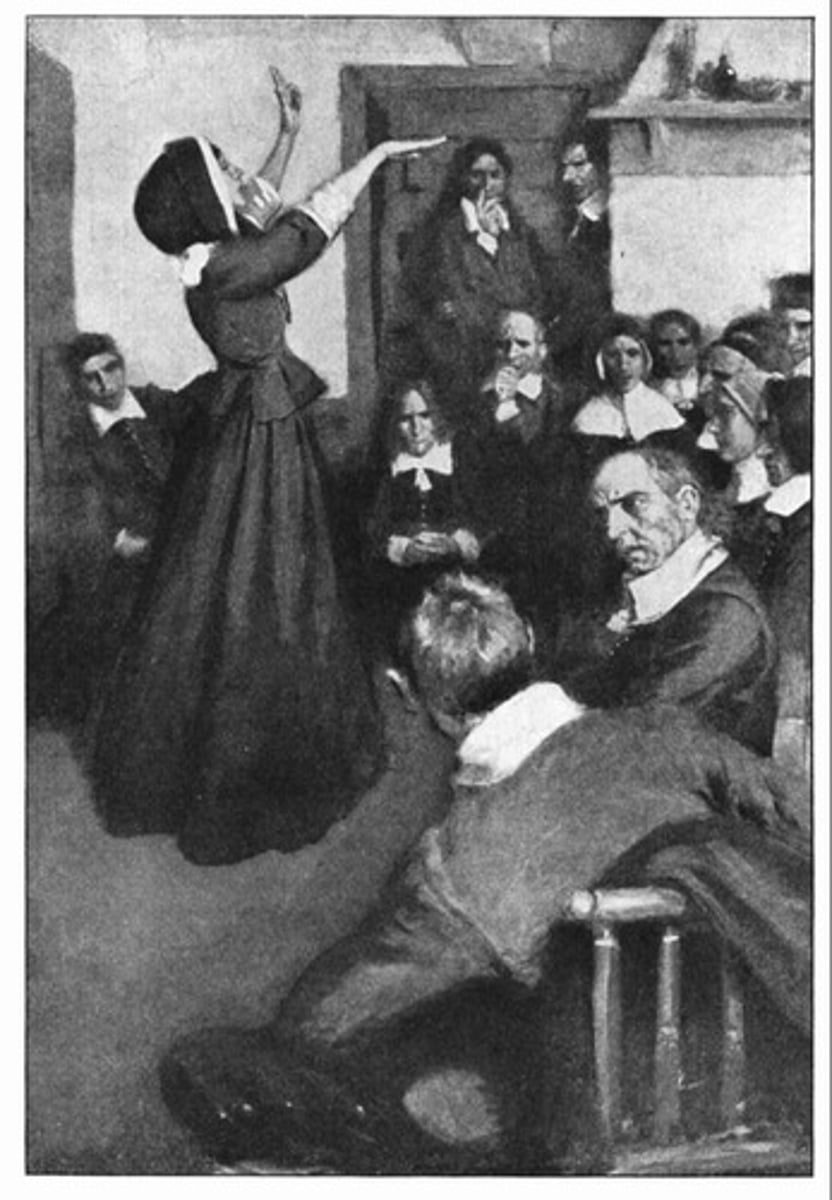
Rhode Island
In 1644, Parliament granted Roger Williams a charter, joining Providence and Portsmouth into a single colony, Rhode Island. (p. 30)
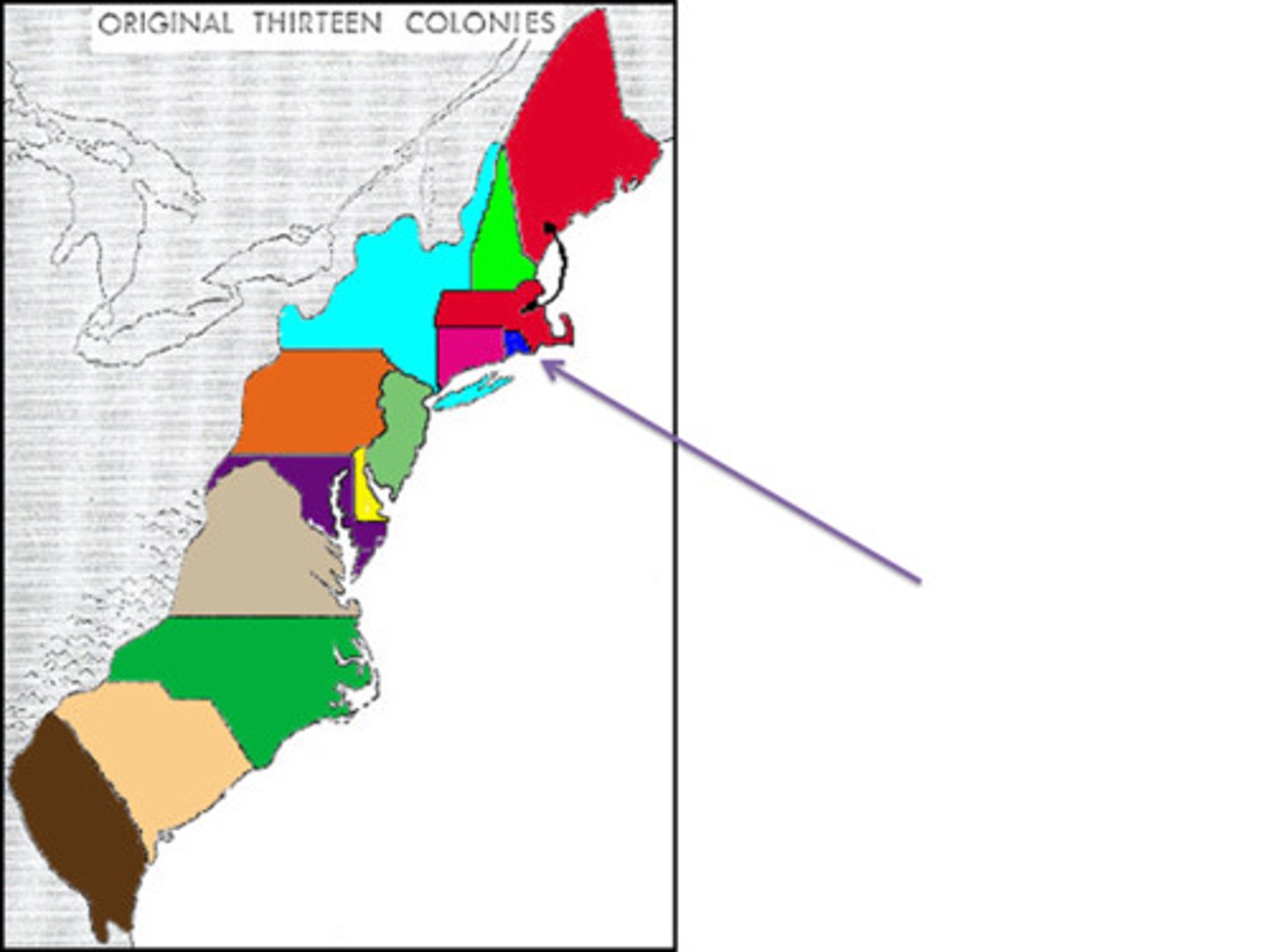
Halfway covenant
In the 1660s, people could now take part in church services and activities without making a formal commitment to Christ. It was created because the next generation of colonists were less committed to religious faith, but churches still needed members. (p. 31)
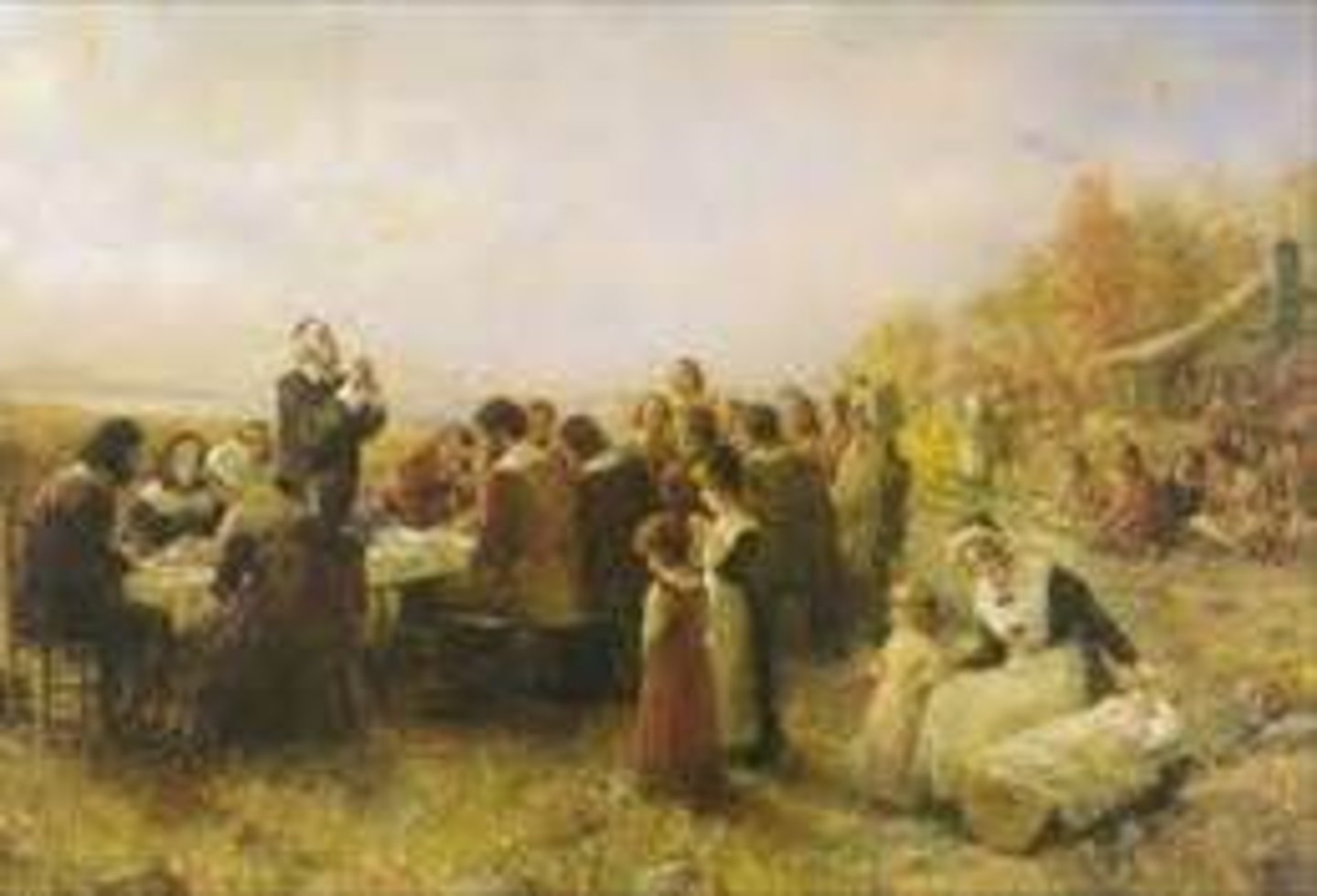
Quakers
Members of the Religious Society of Friends who believed in the equality of men and women, nonviolence, and resistance to military service. (p. 34)
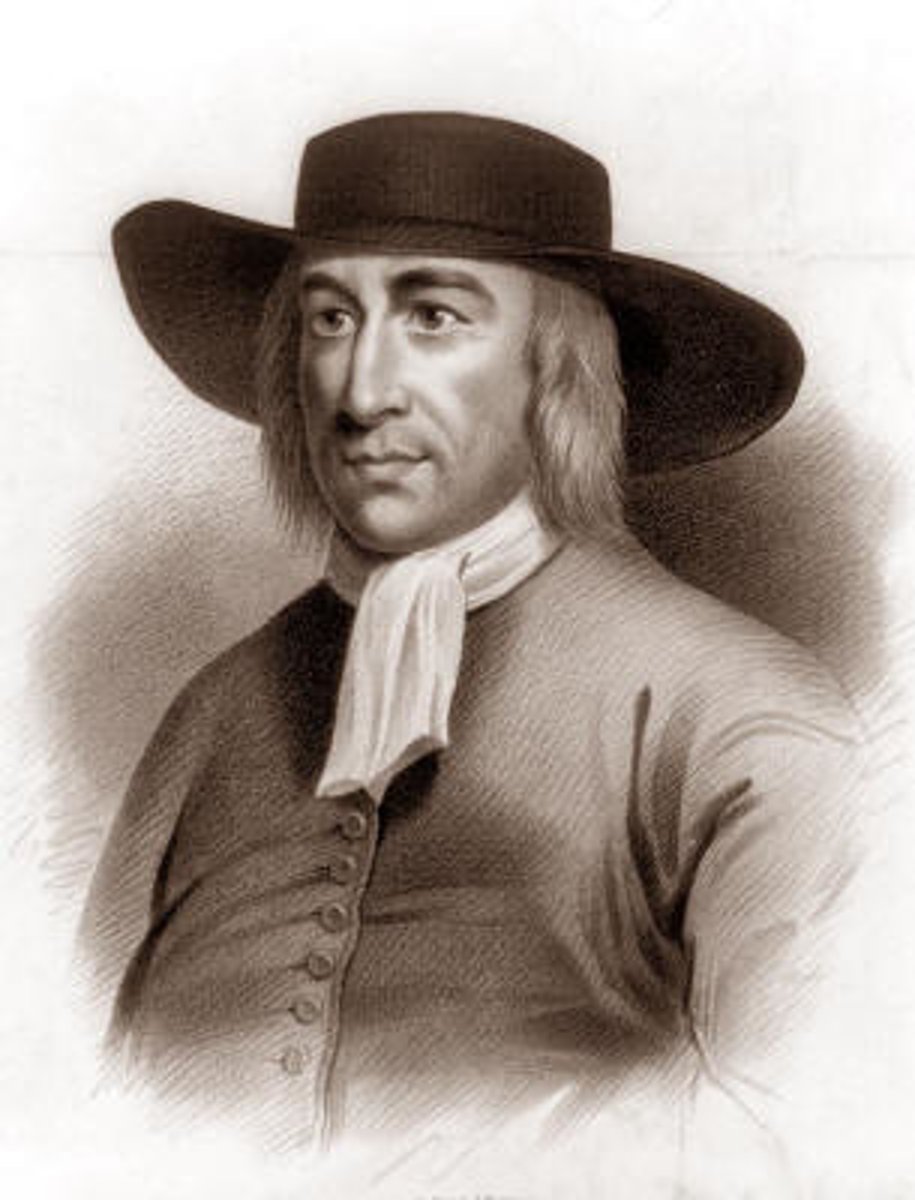
William Penn
In 1861, the royal family paid a large debt by granting his family a large parcel of American land. This Quaker, formed a colony that he named Pennsylvania. (p. 34)
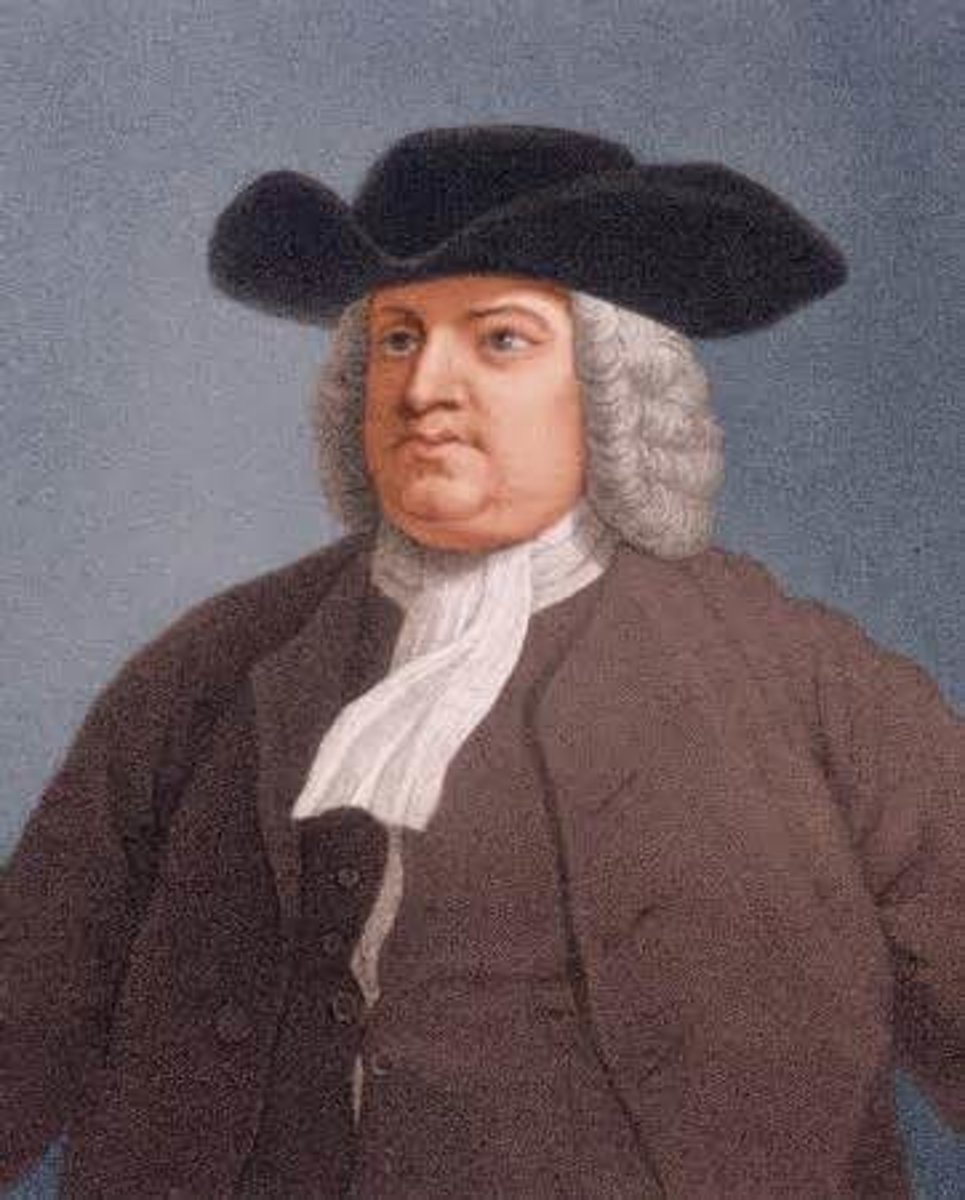
Holy Experiment
William Penn wanted a colony to provide a religious refuge for Quakers and other persecuted people, enact liberal ideas in government, and generate income and profits for himself. (p. 34)
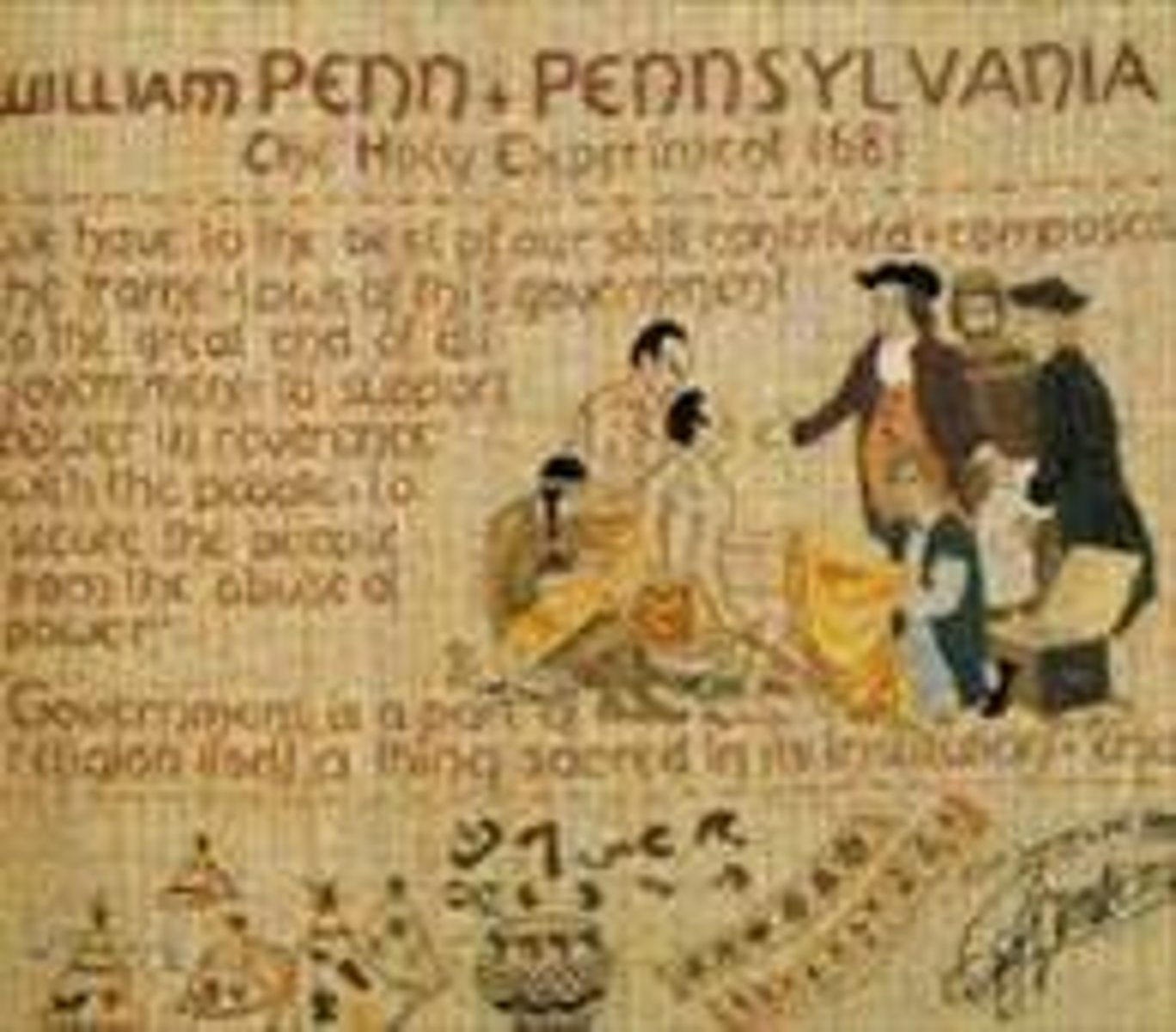
Charter of Liberties
In 1701, the Pennsylvania colony created this written constitution which guaranteed freedom of worship for all and unrestricted immigration. (p. 34)
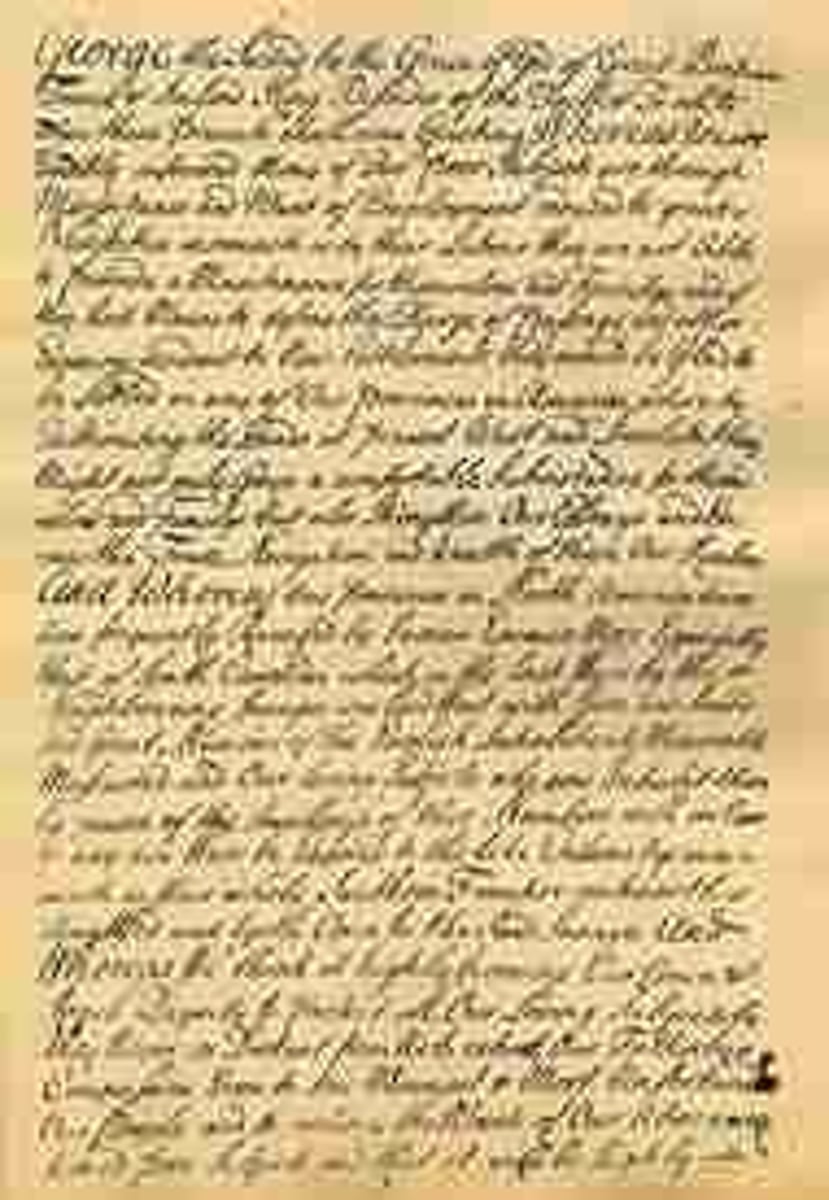
rice plantations
These plantations required a loarge land area and many slaves. (p. 37)
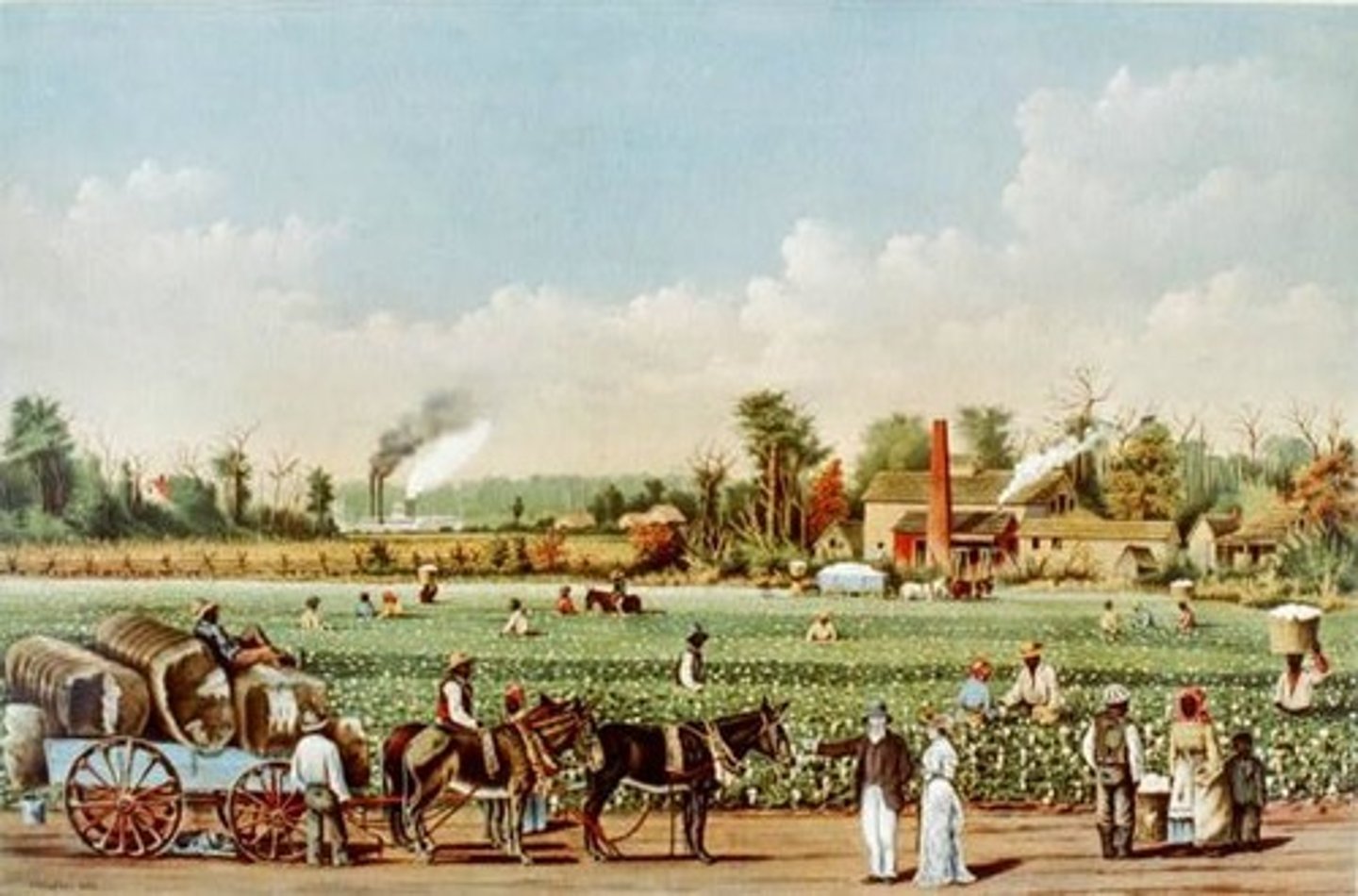
tobacco farms
As Tobacco prices fell, rice and indigo became the most profitable crops. (p. 37)
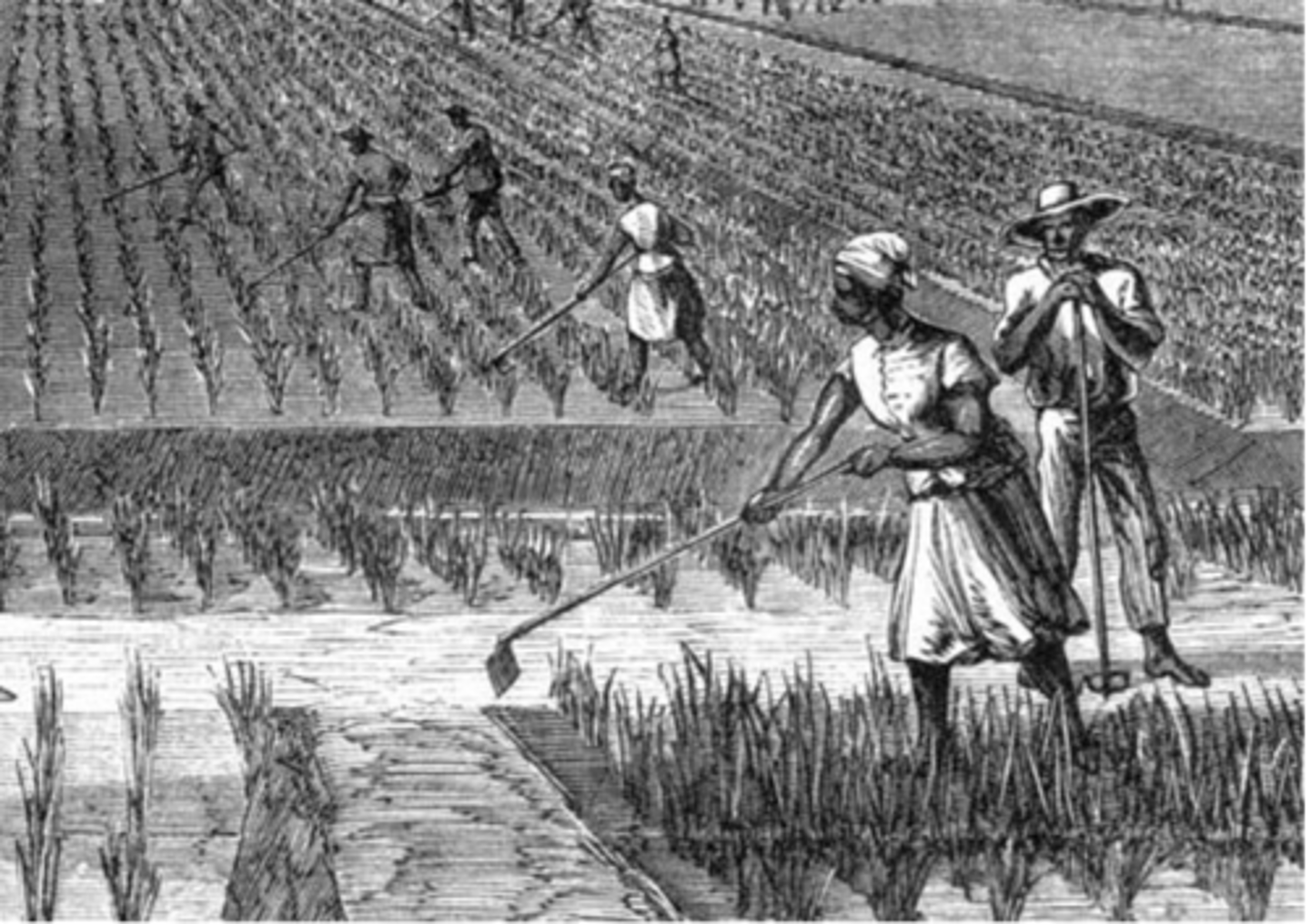
John Cabot
First Englishman to explore lands in North America which England would later settle in the early 1600's. (p. 25)
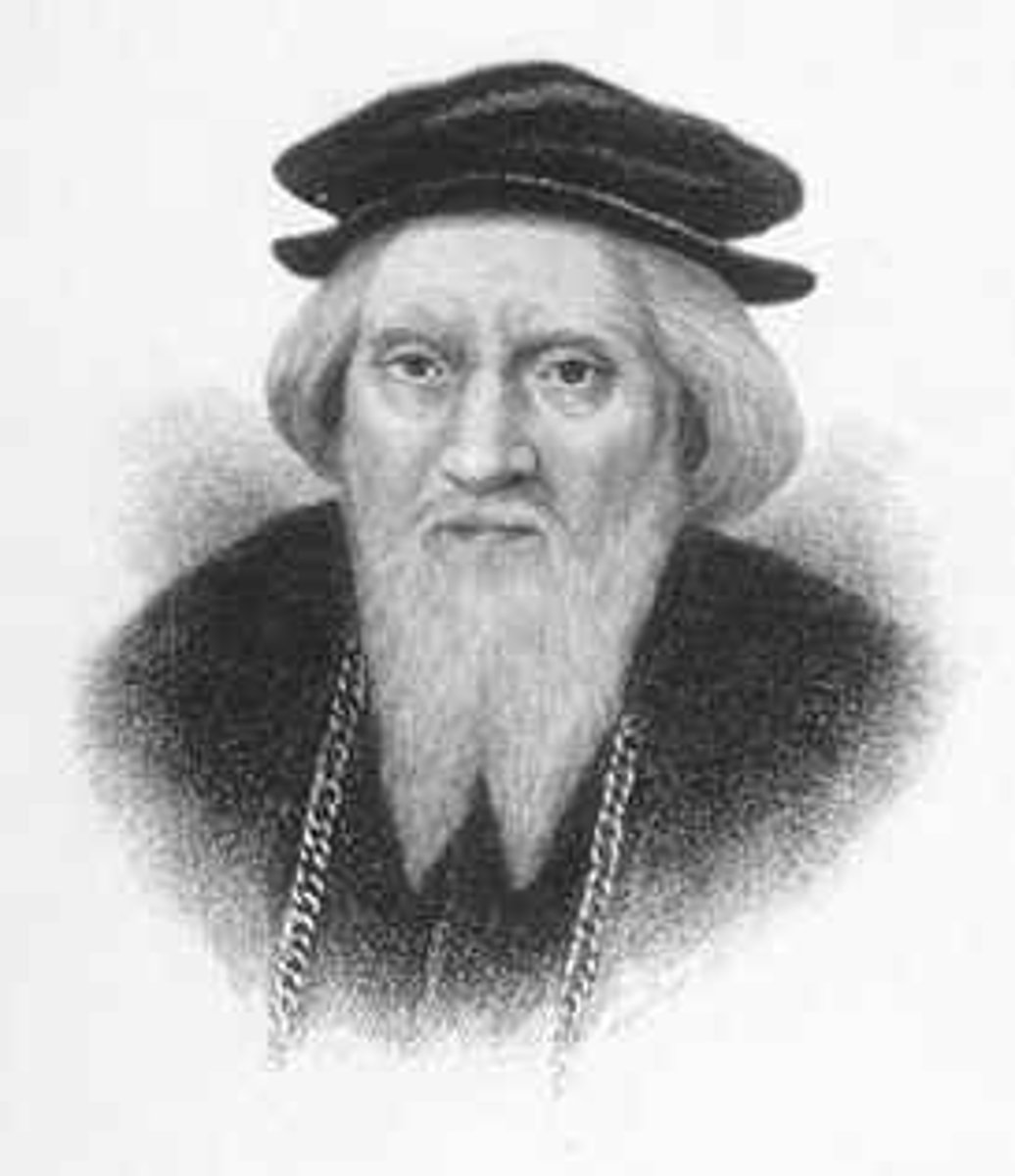
Jamestown
In 1607, the first permanent English colony in America was founded at this location.
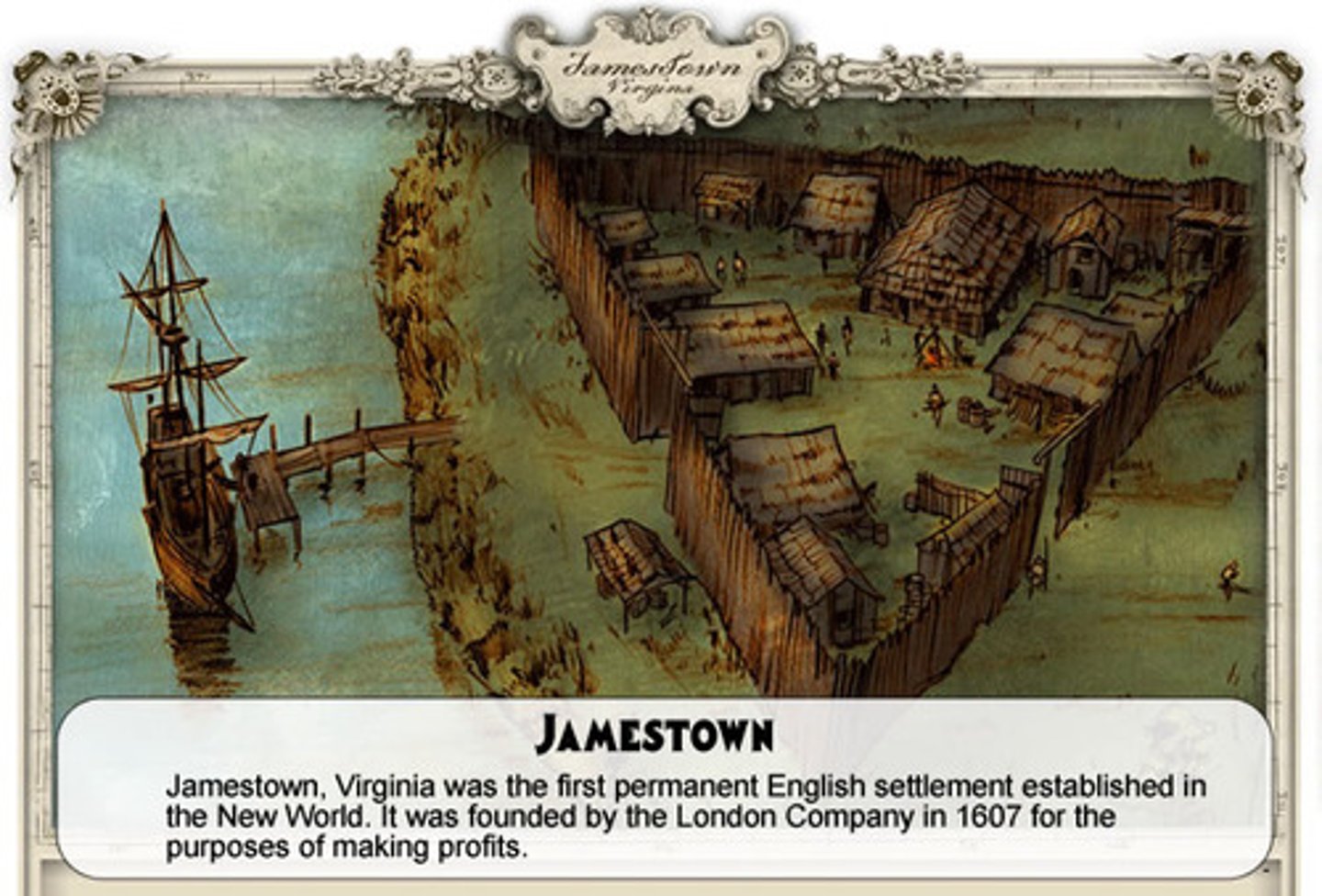
Captain John Smith
Because of his forceful leadership, Jamestown barely survived its first five years. (p. 25)
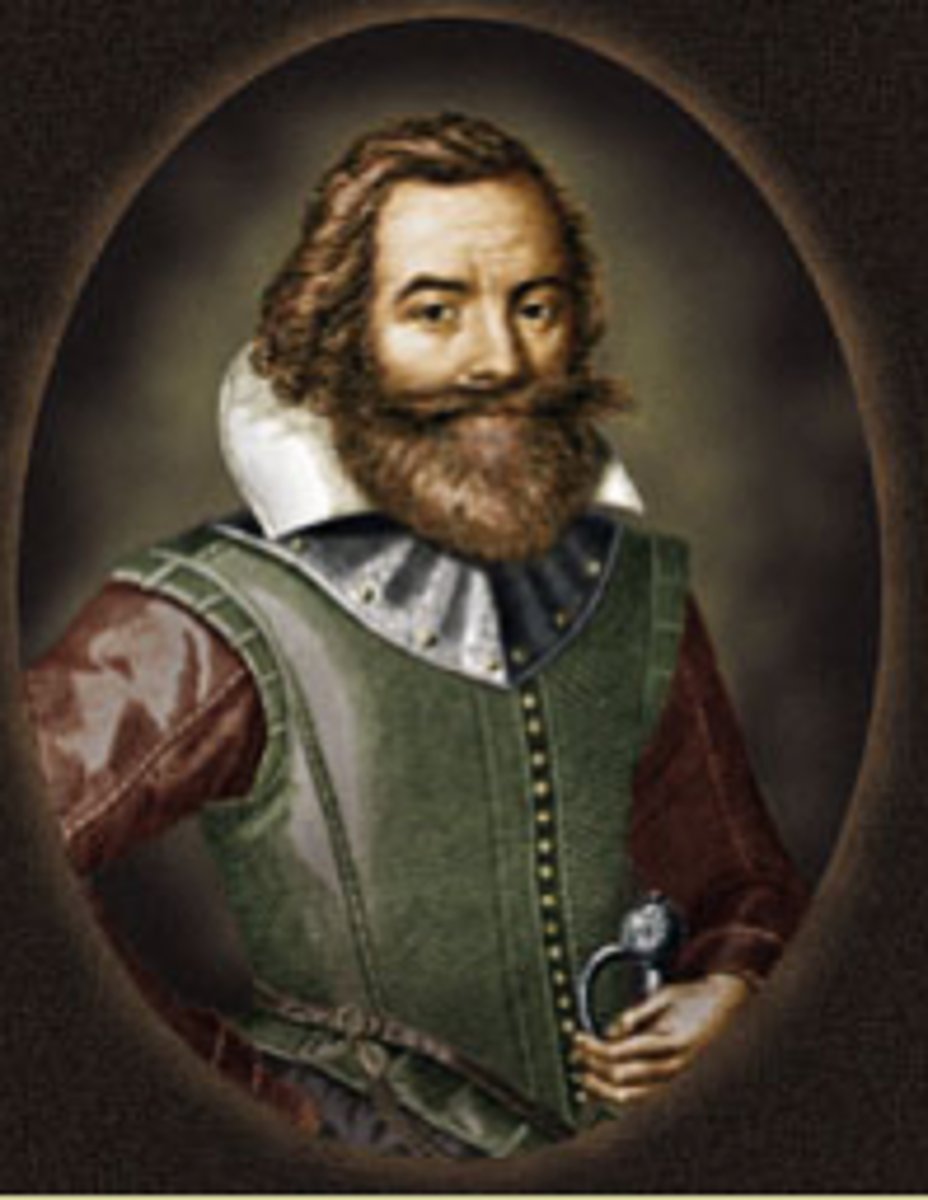
John Rolfe
He helped Jamestown develop a new variety of tobacco which became popular in Europe and became a profitable crop. (p. 25)
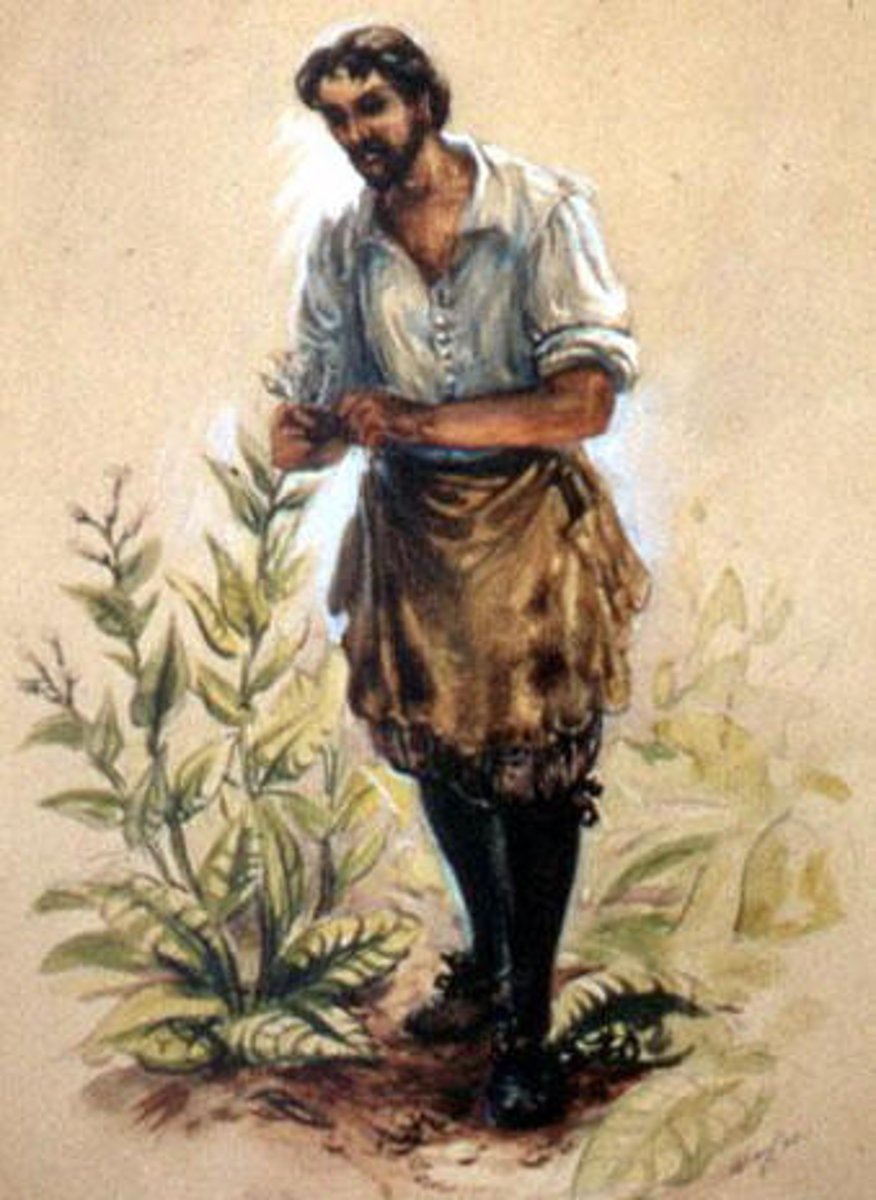
Pocahontas
She was the American Indian wife of John Rolfe in early settlement days in Jamestown. (p. 25)
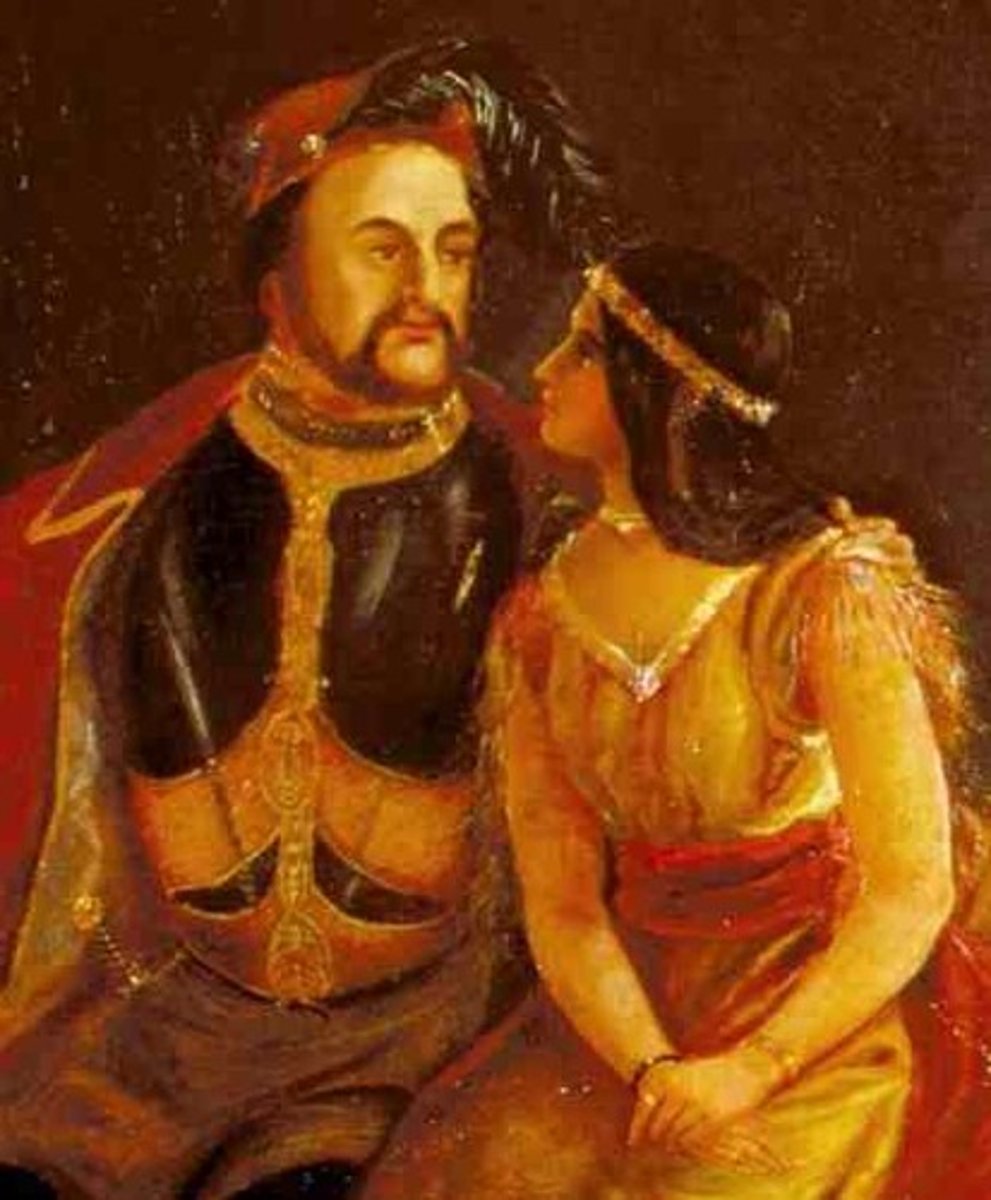
Puritans
Group of dissenters that wanted to purify the Church of England. In 1630 they founded the Massachusetts Bay Colony at Boston. (p. 26)
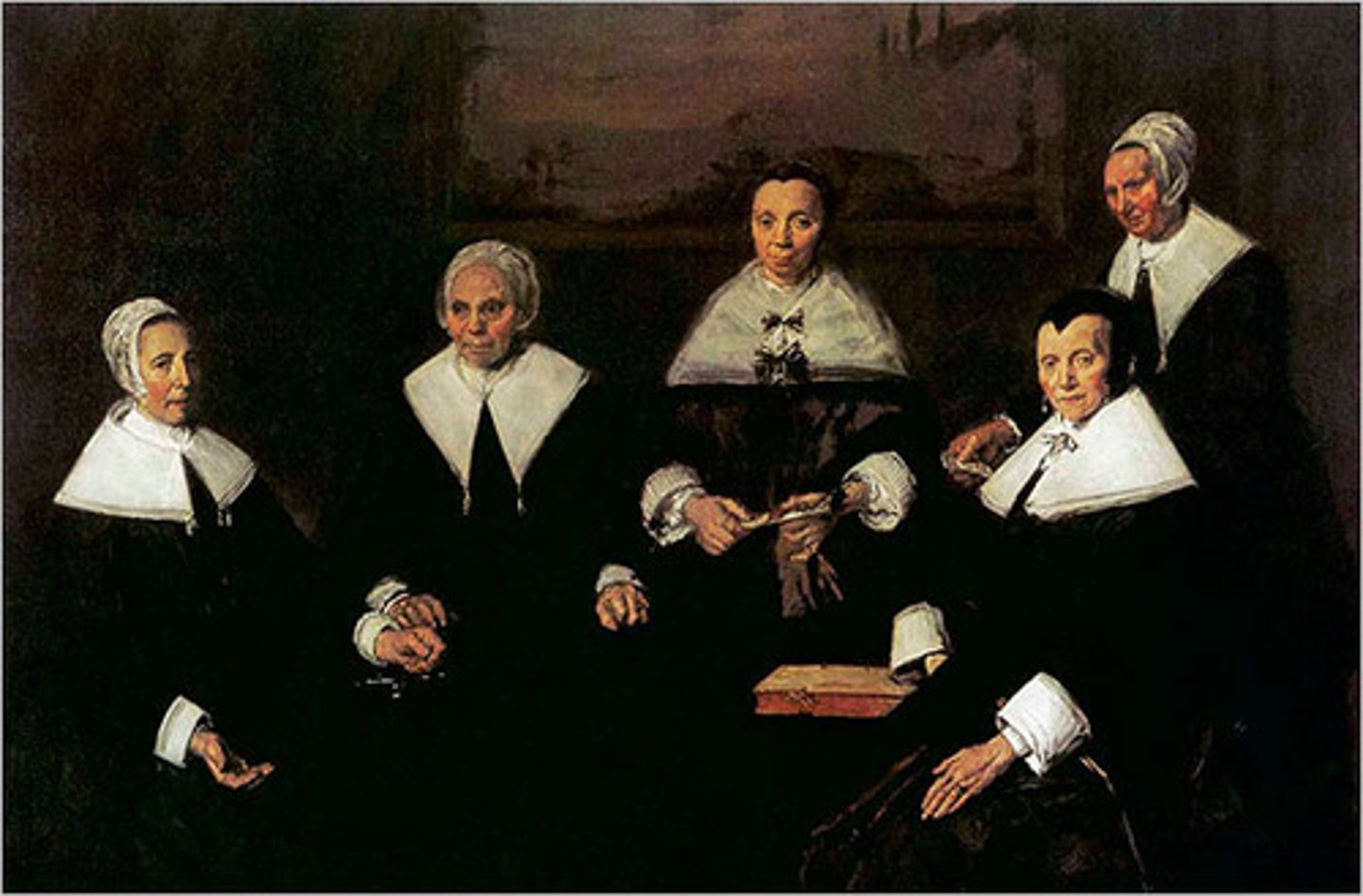
Separatists
Radical dissenters to the Church of England, They became known as Pilgrims,
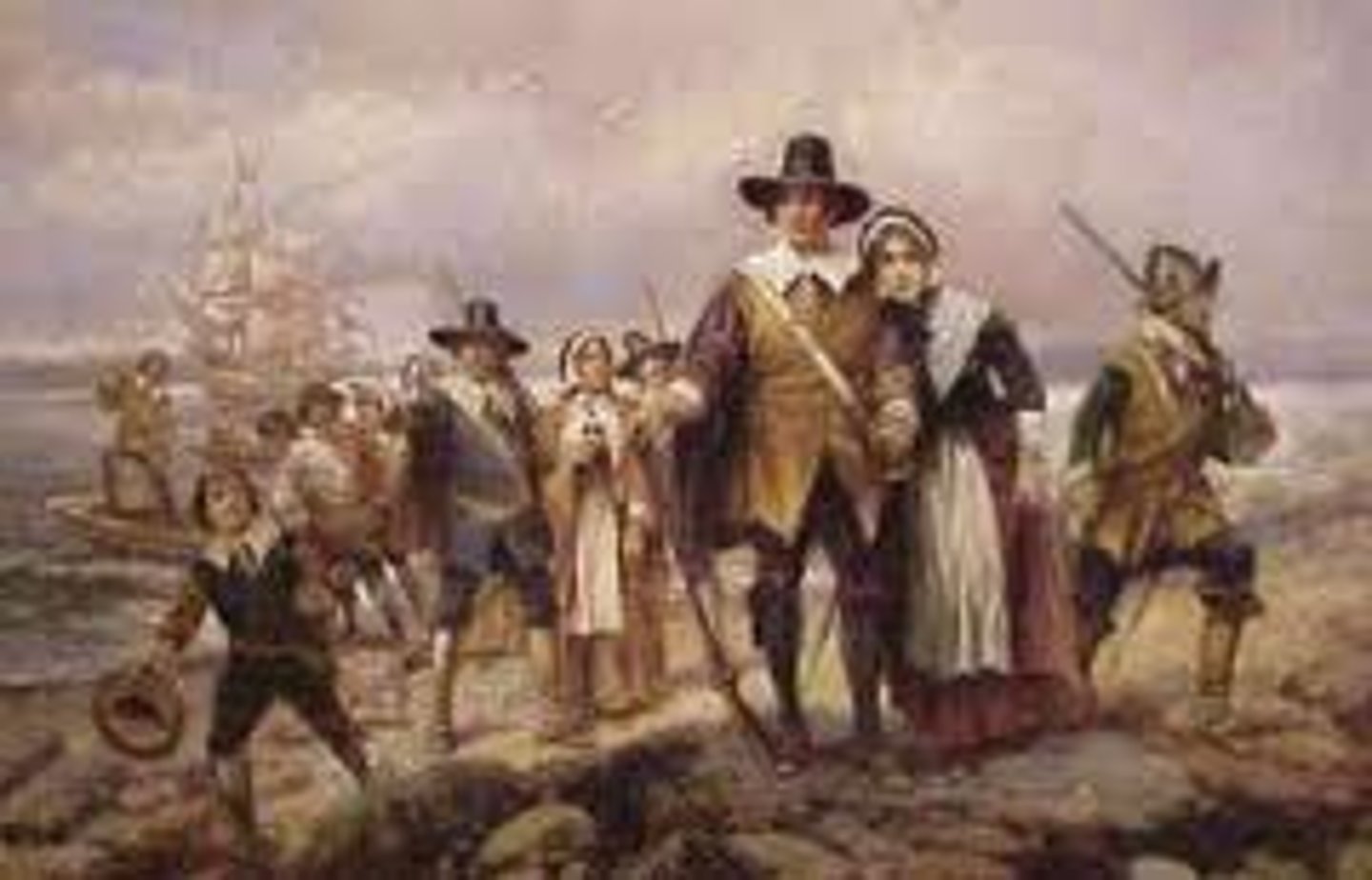
Mayflower
In 1620, the boat that the Pilgrims sailed to Plymouth. (p. 26)
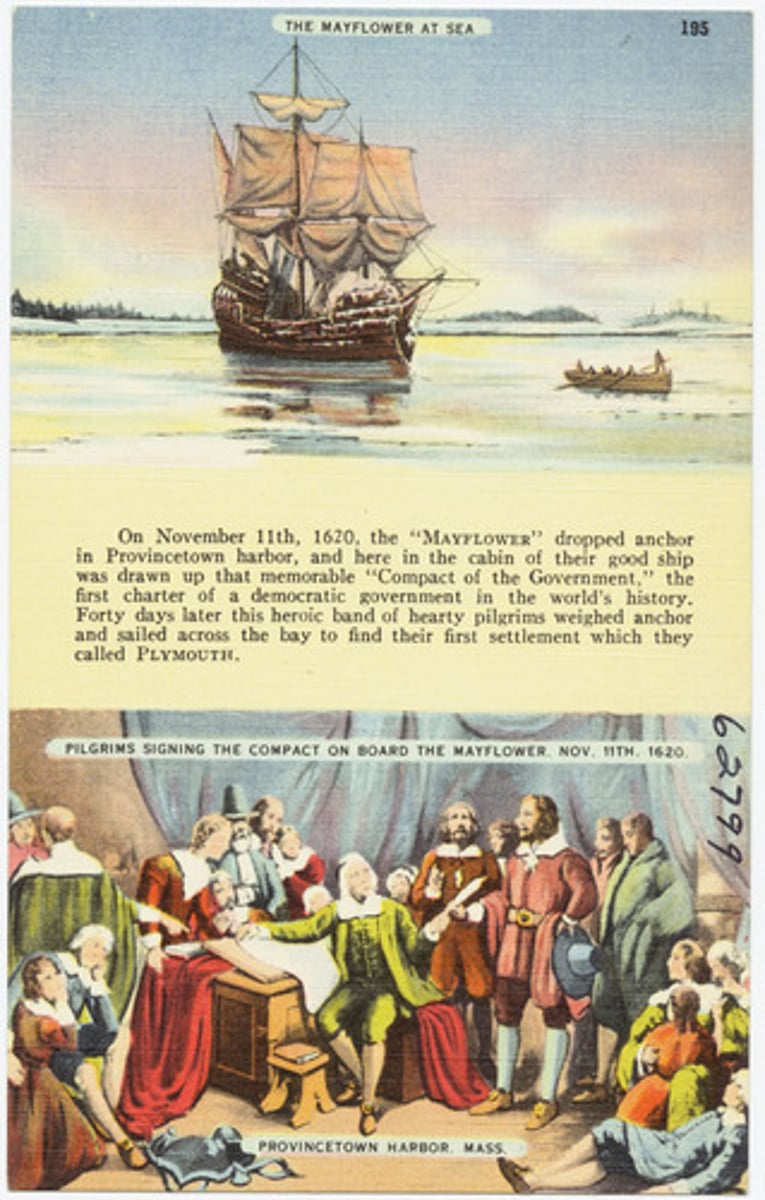
Plymouth Colony
This colony was started by the Pilgrims at Plymouth (Massechusetts).
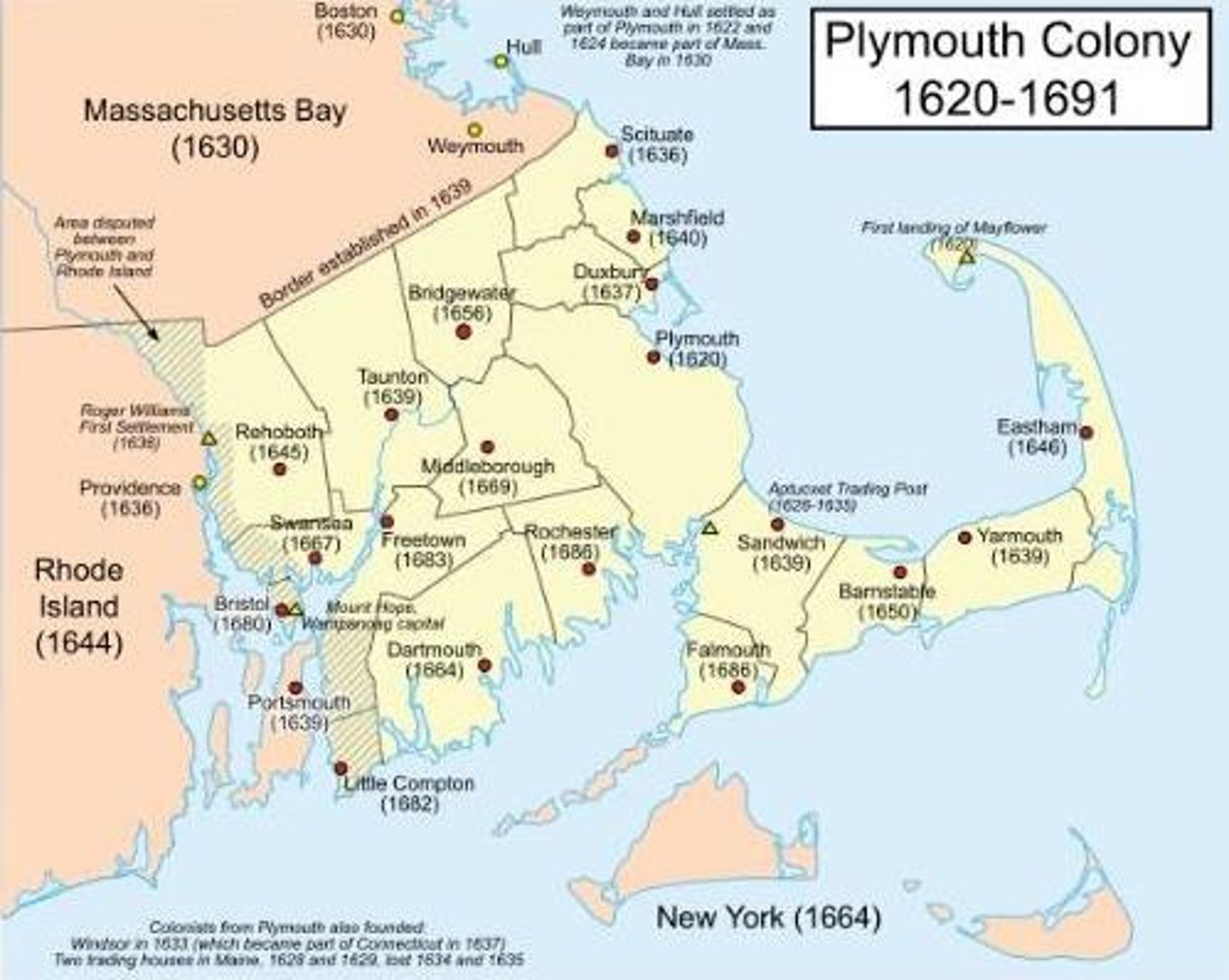
John Winthrop
In 1630, he led about a thousand Puritans to America and and founded Boston and several other towns. (p. 26)
Great Migration
This movement started because of a civil war in England. Nearly 15,000 settlers came to the Massachusetts Bay Colony. (p. 26)
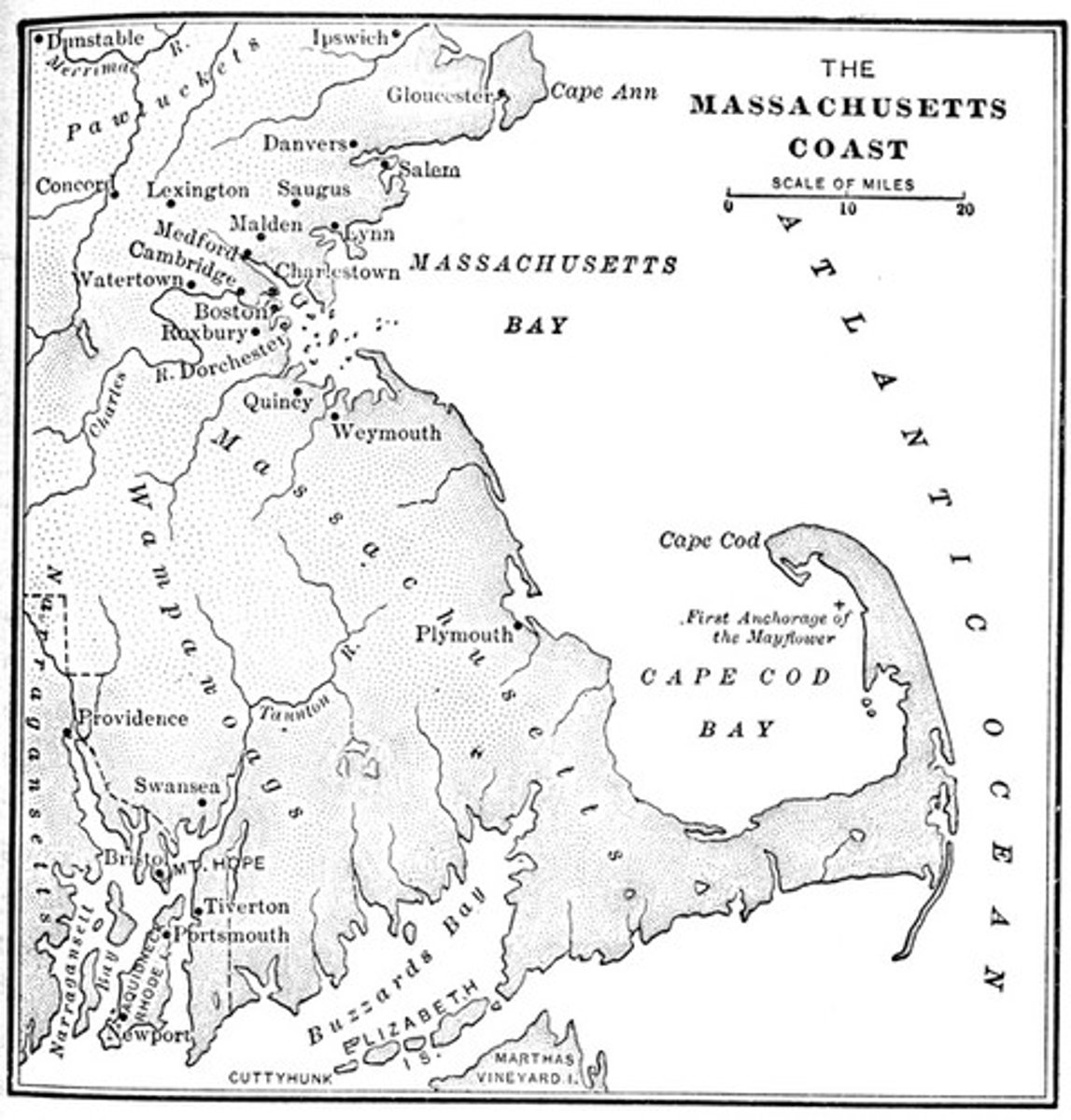
Virginia
Sir William Berkeley, the royal governor of Virginia use dictatorial powers to govern on behalf of the large planters. (p. 29)
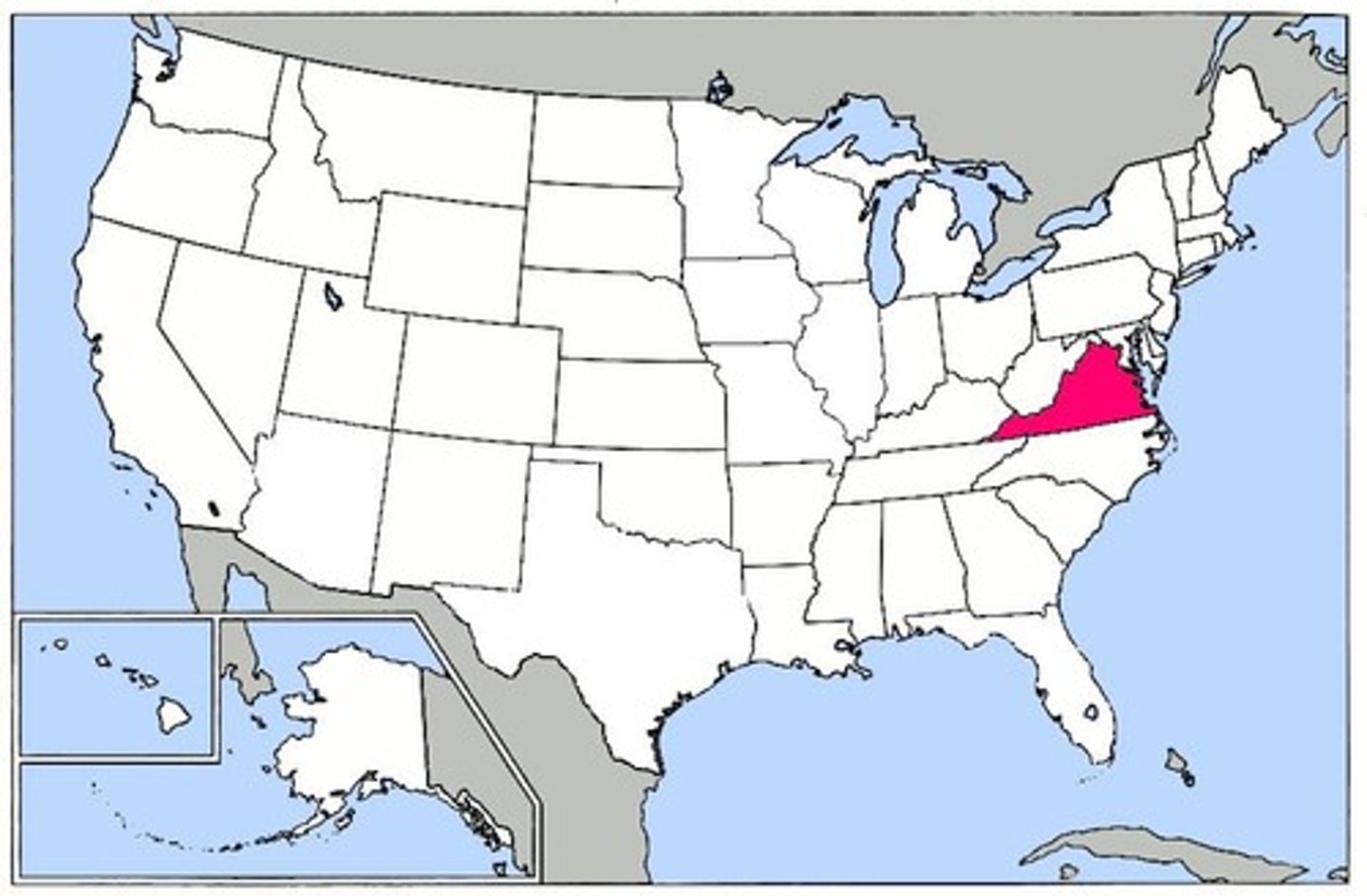
Thomas Hooker
In 1636, he led a large group of Boston Puritans to found Hartford, which is now Connecticut. In 1639 they drew up the first written constitution in American history. (p. 30)
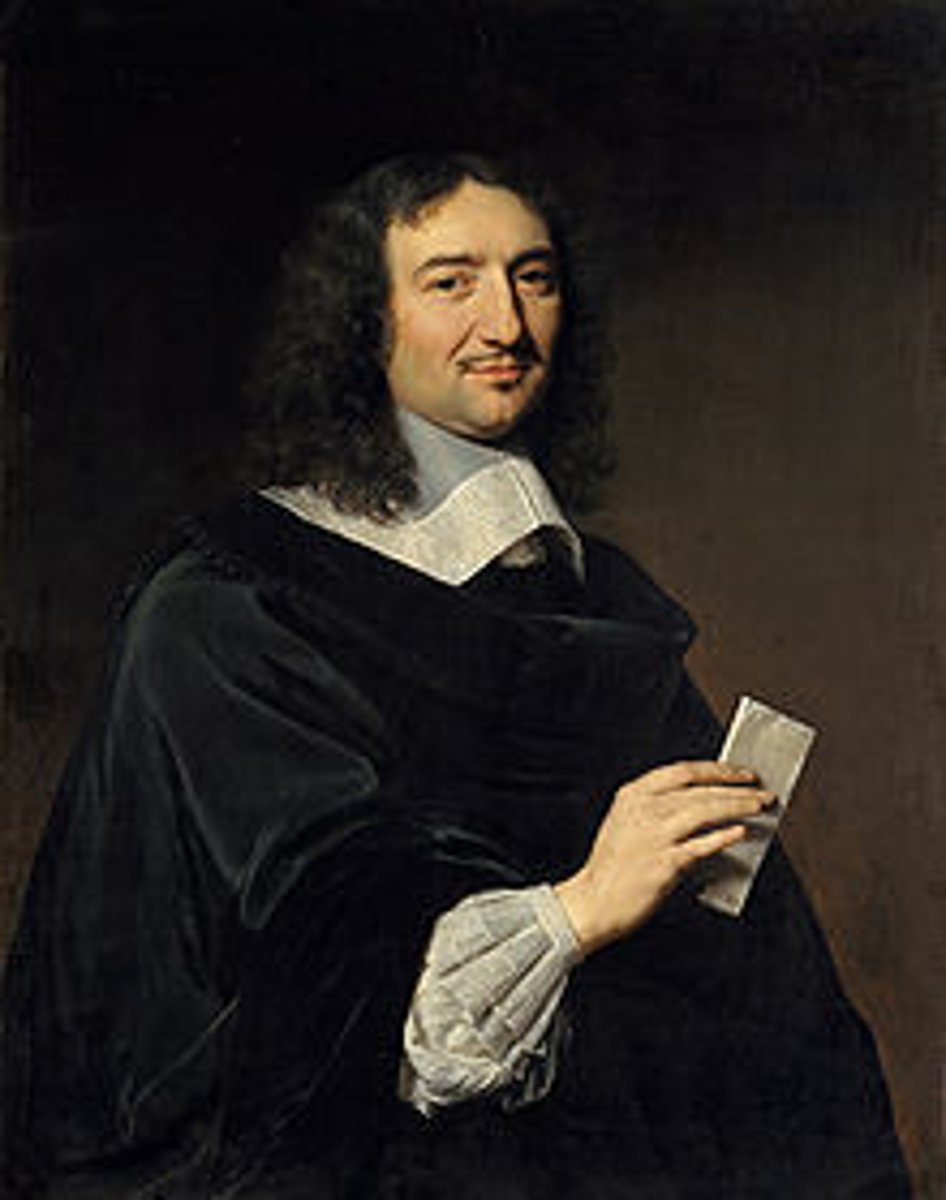
John Davenport
In 1637, he founded a settlement south of Hartford, by the name of New Haven Ct.. (p. 30)
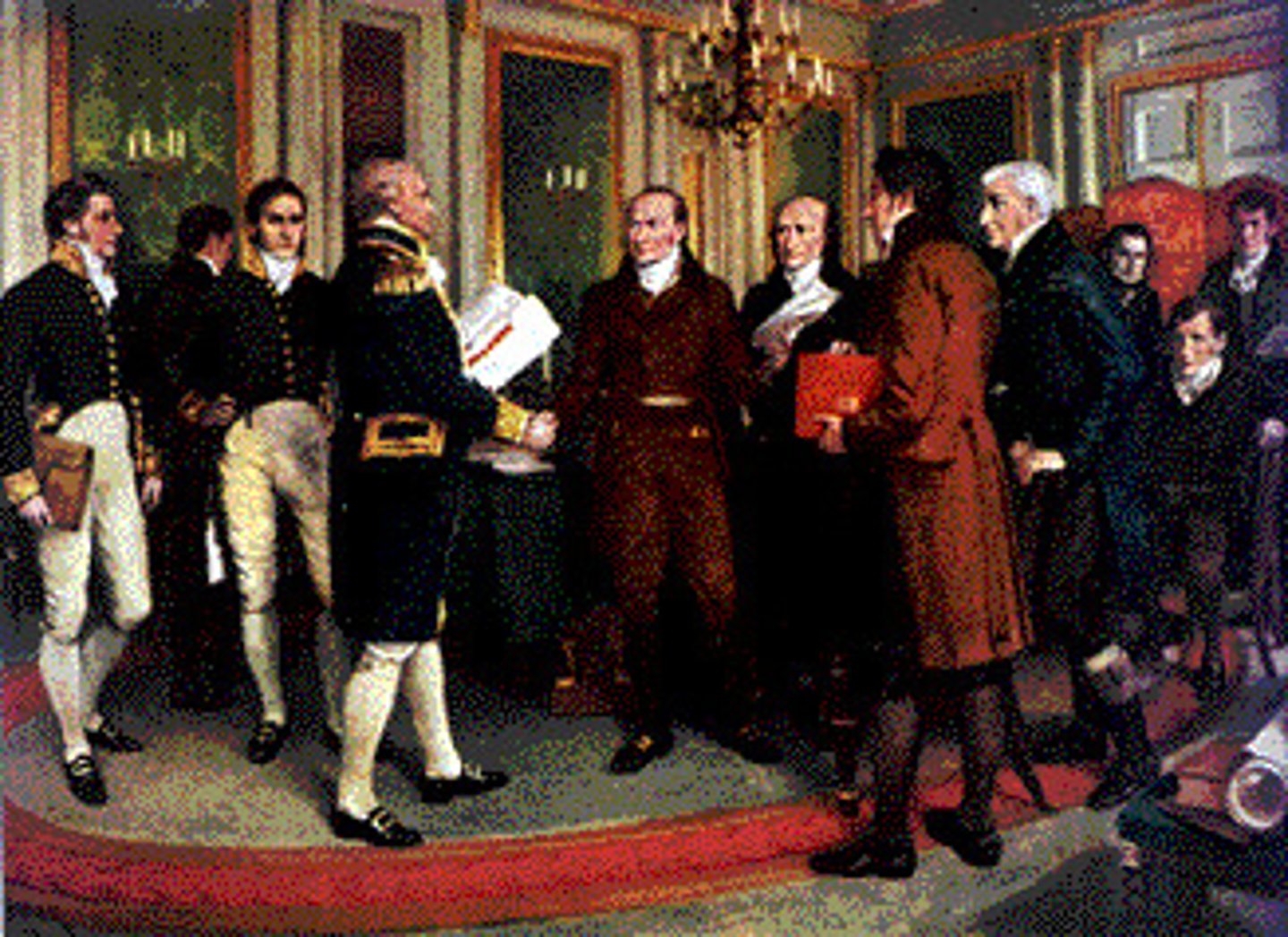
Connecticut
In 1665, New Haven and Hartford joined to form the colony of Connecticut under a royal charter. (p. 30)
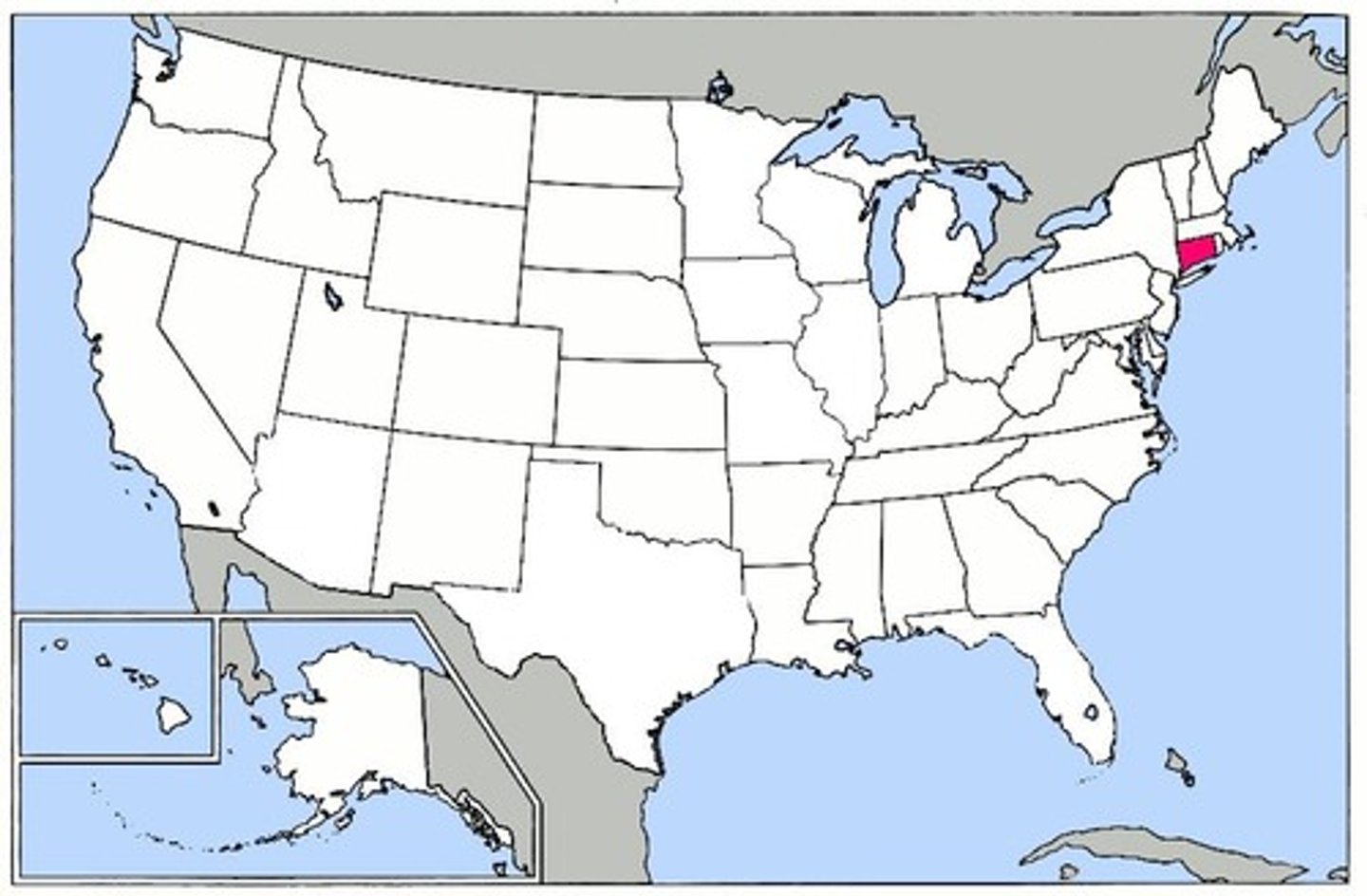
New Hampshire
Hoping to increase royal control in the colonies, King Charles II separated New Hampshire from Massachusetts in 1679 and made it a royal colony. (p. 31)
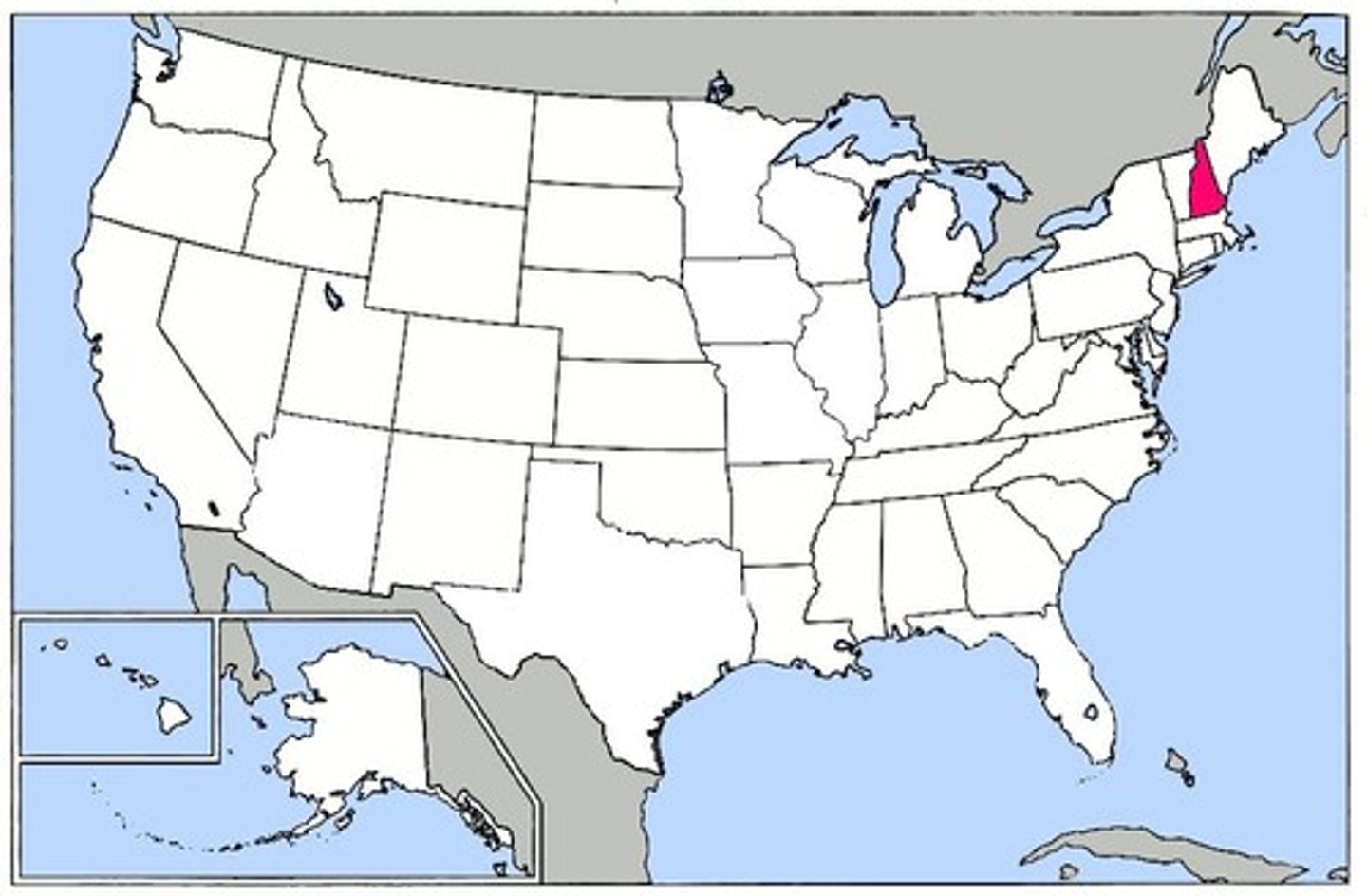
The Carolinas
In 1663, King Charles II granted eight nobles the Carolinas. In 1729, the Carolinas were split into two royal colonies. In South Carolina, the economy was based on the fur trade and growing food for the West Indies, which led to many plantations. In North Carolina, there were many small tobacco farms and fewer plantations. (p. 32)
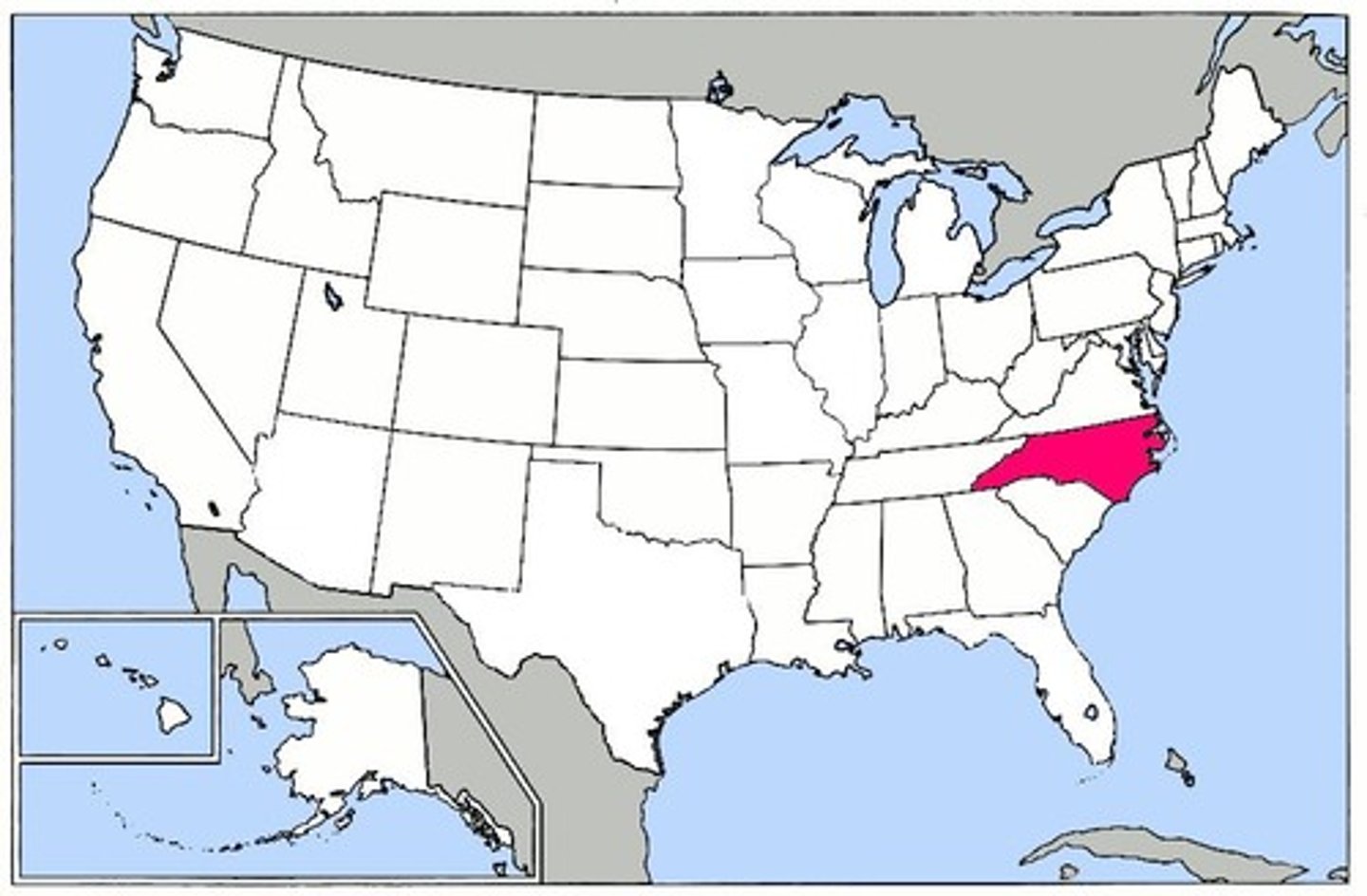
New York
James took control of the Dutch colony that was located there
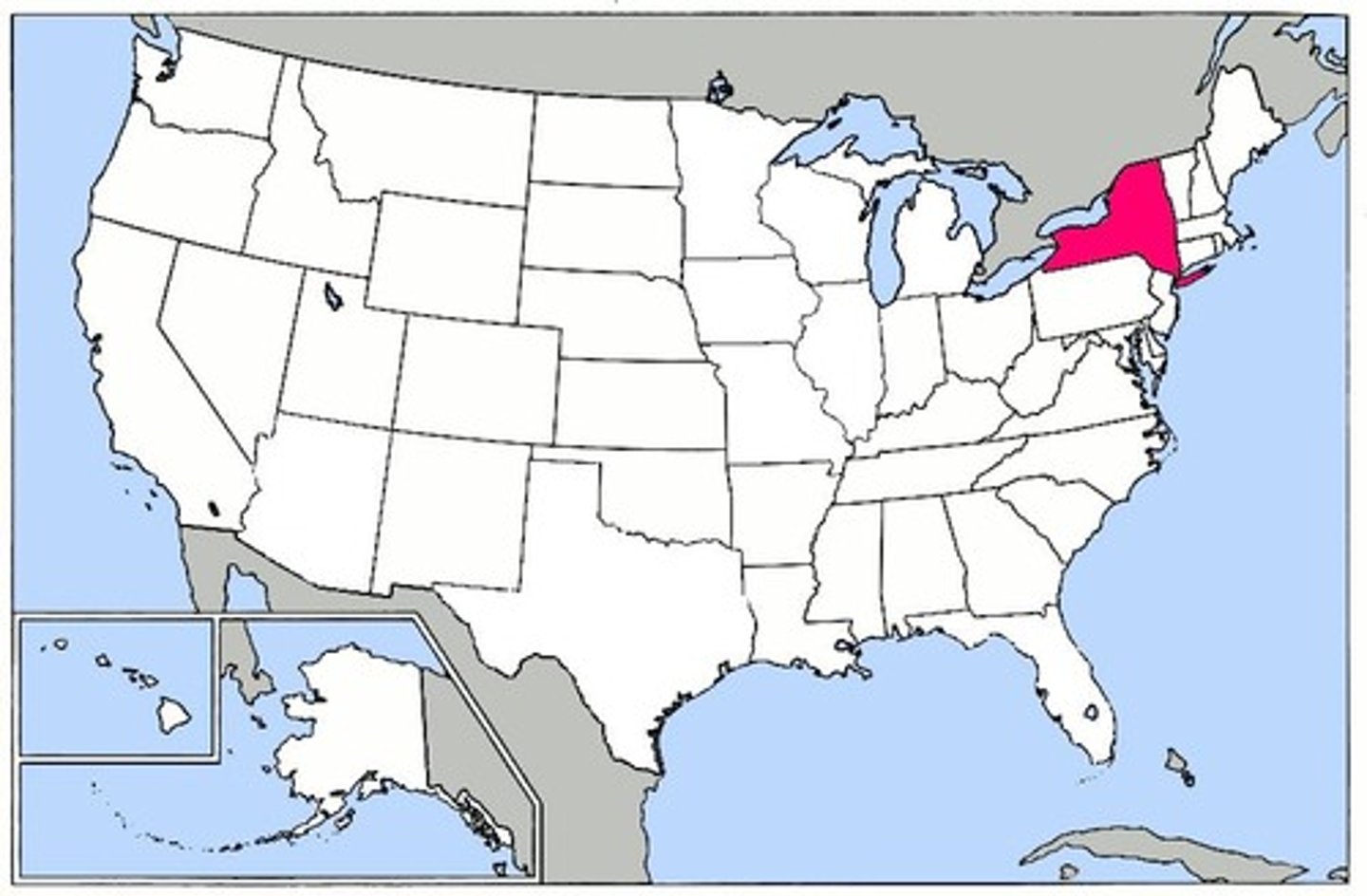
New Jersey
The territory of New York was split. In 1674, land was granted to Lord John Berkeley and Sir George Carteret. Eventually they sold to the Quakers.
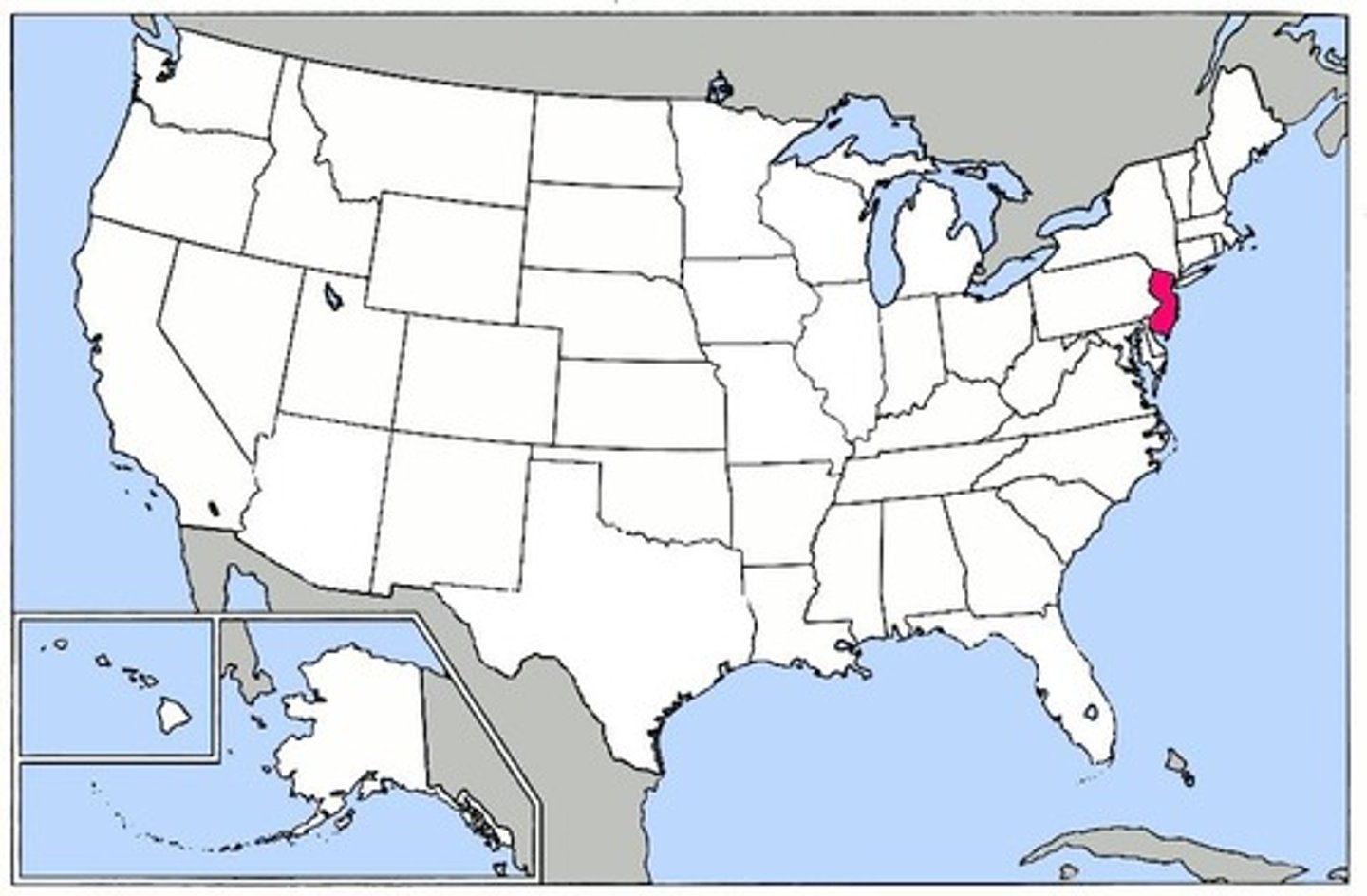
Pennsylvania
In 1861, the royal family paid a large debt by granting William Penn's father a large parcel of American land. He then formed a colony from the land. (p. 34)
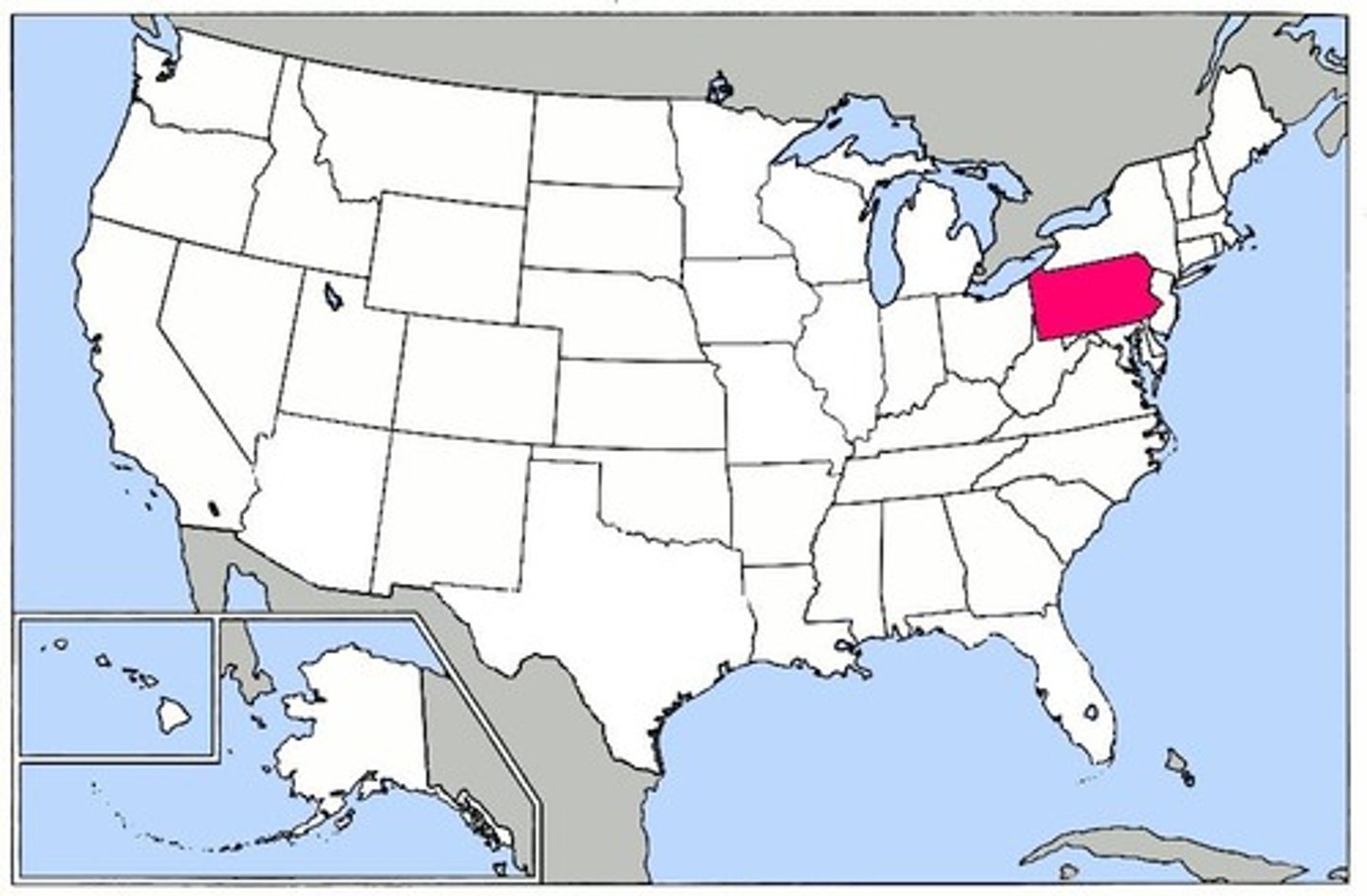
Delaware
In 1702, William Penn granted the lower three colonies of Pennsylvania their own assembly.
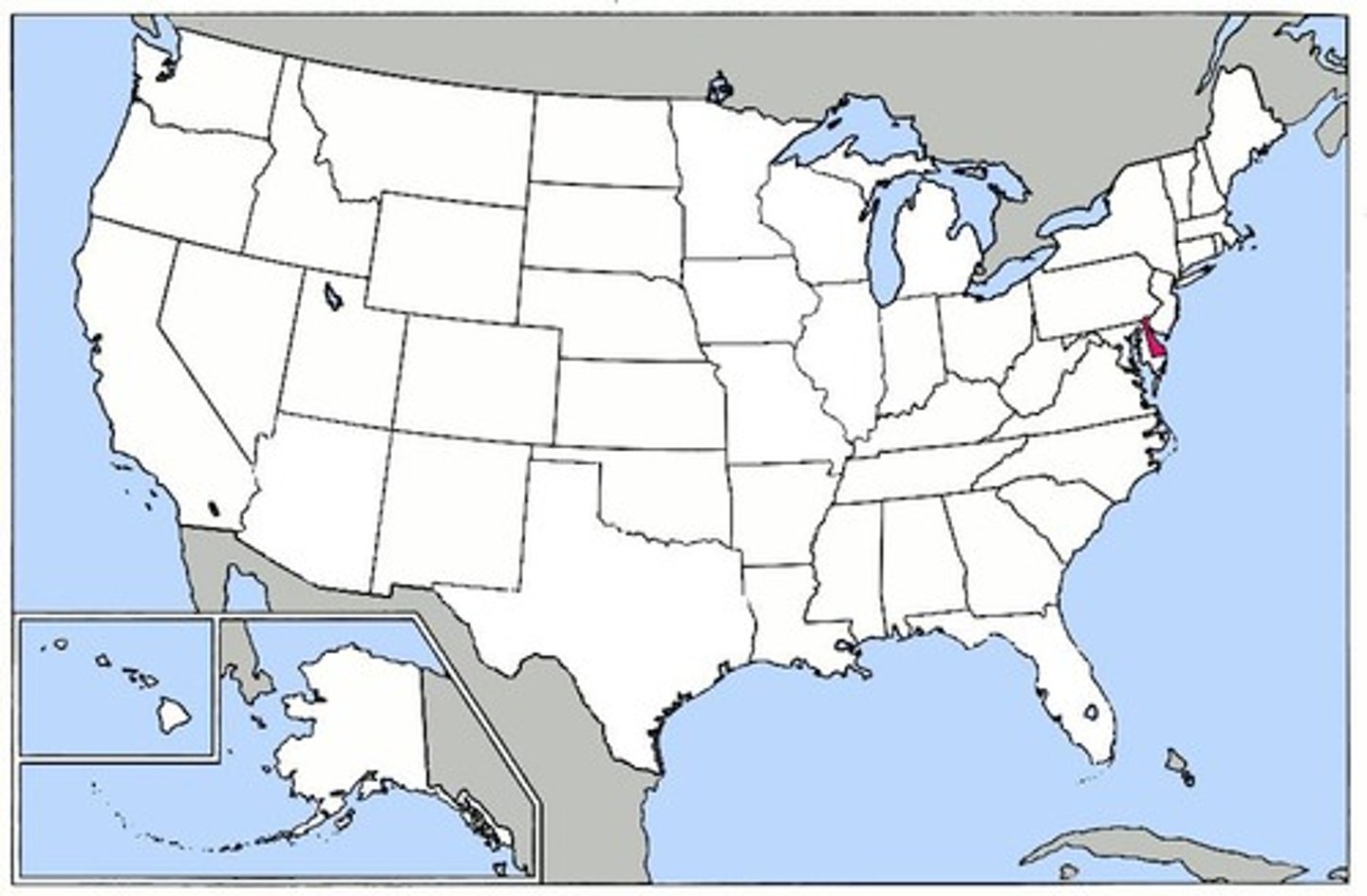
Georgia
In 1732, Georgia was formed to provide a buffer between wealthy Georgia and Spanish controlled Florida, and to provide a place for the many debtors of England to begin again. (p. 34)
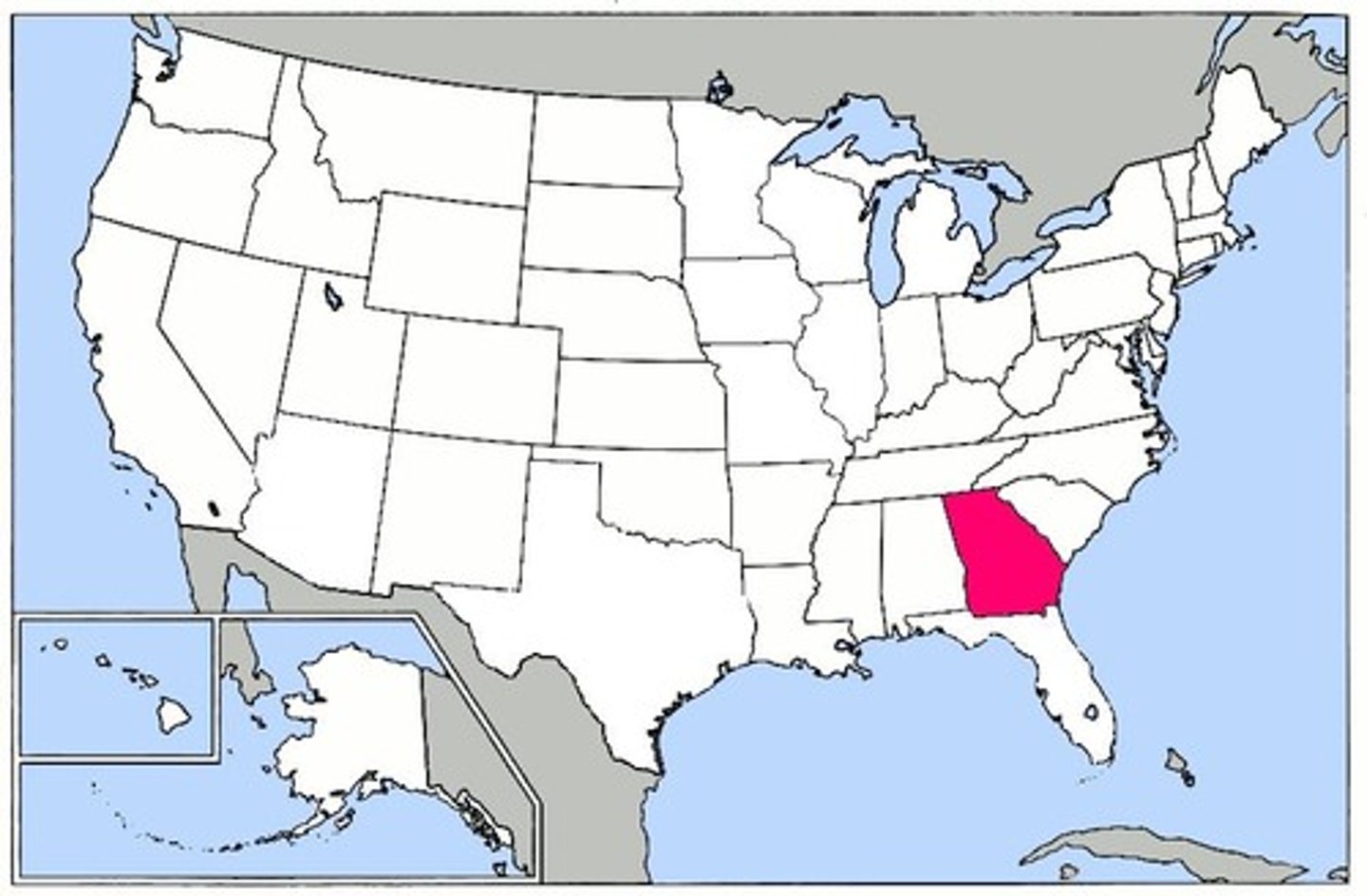
James Oglethorpe
Founder of Georgia's first settlement, Savannah, in 1733. He acted as governor of Georgia and had strict laws which included a ban on rum and slavery. (p. 35)
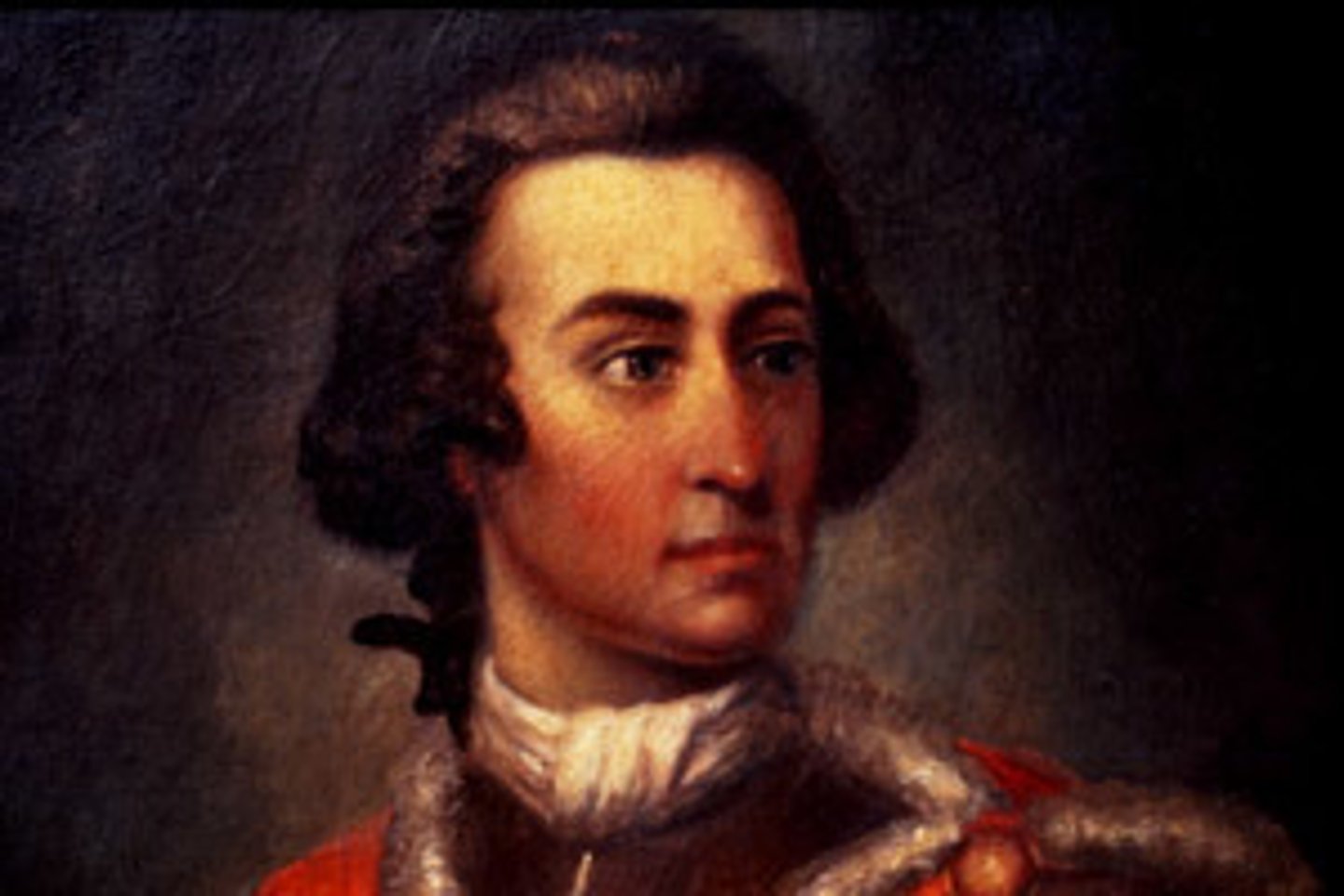
Wampanoags
An American Indian tribe led by Metacom. (p. 31)
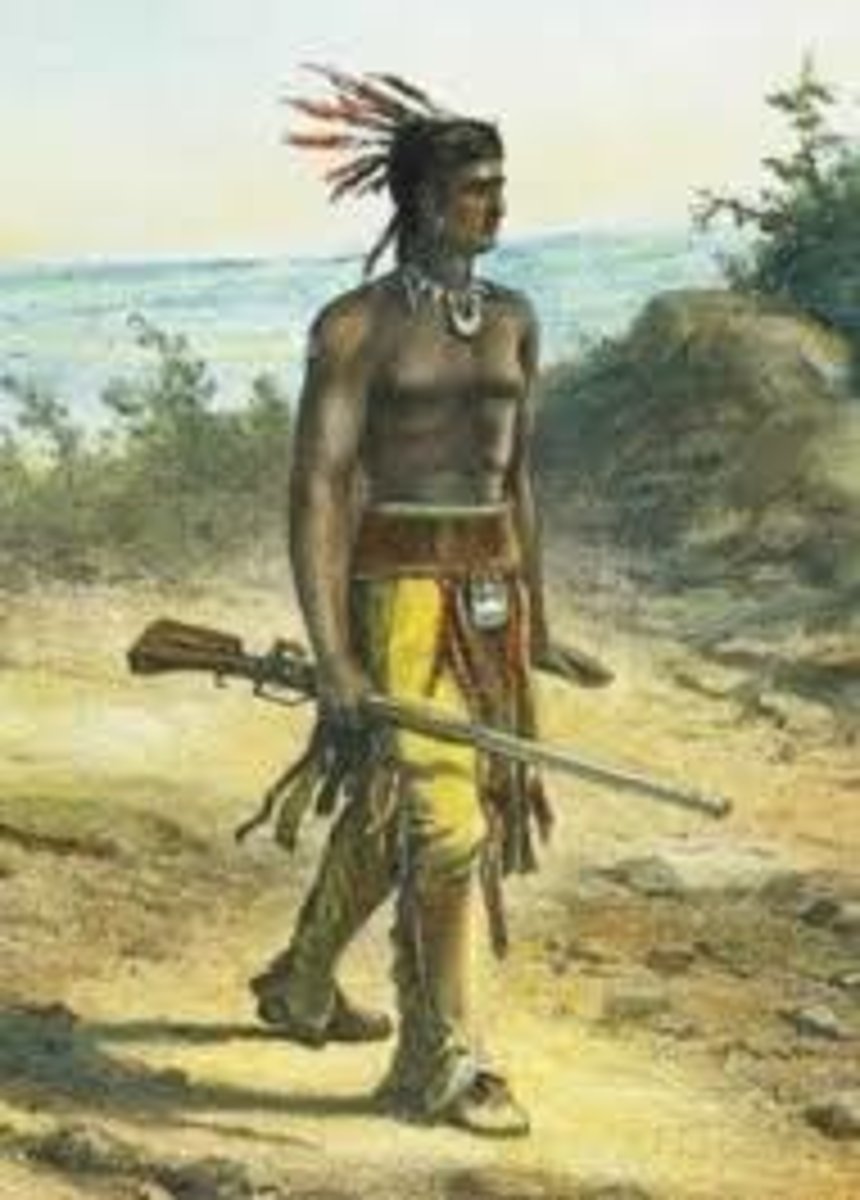
Metacom
This American Indian chief was known to the colonists as King Philip. He joined together the Native American tribes to fight the colonists in King Philip's War, a war that lasted from 1675 to 1676. (p. 31)
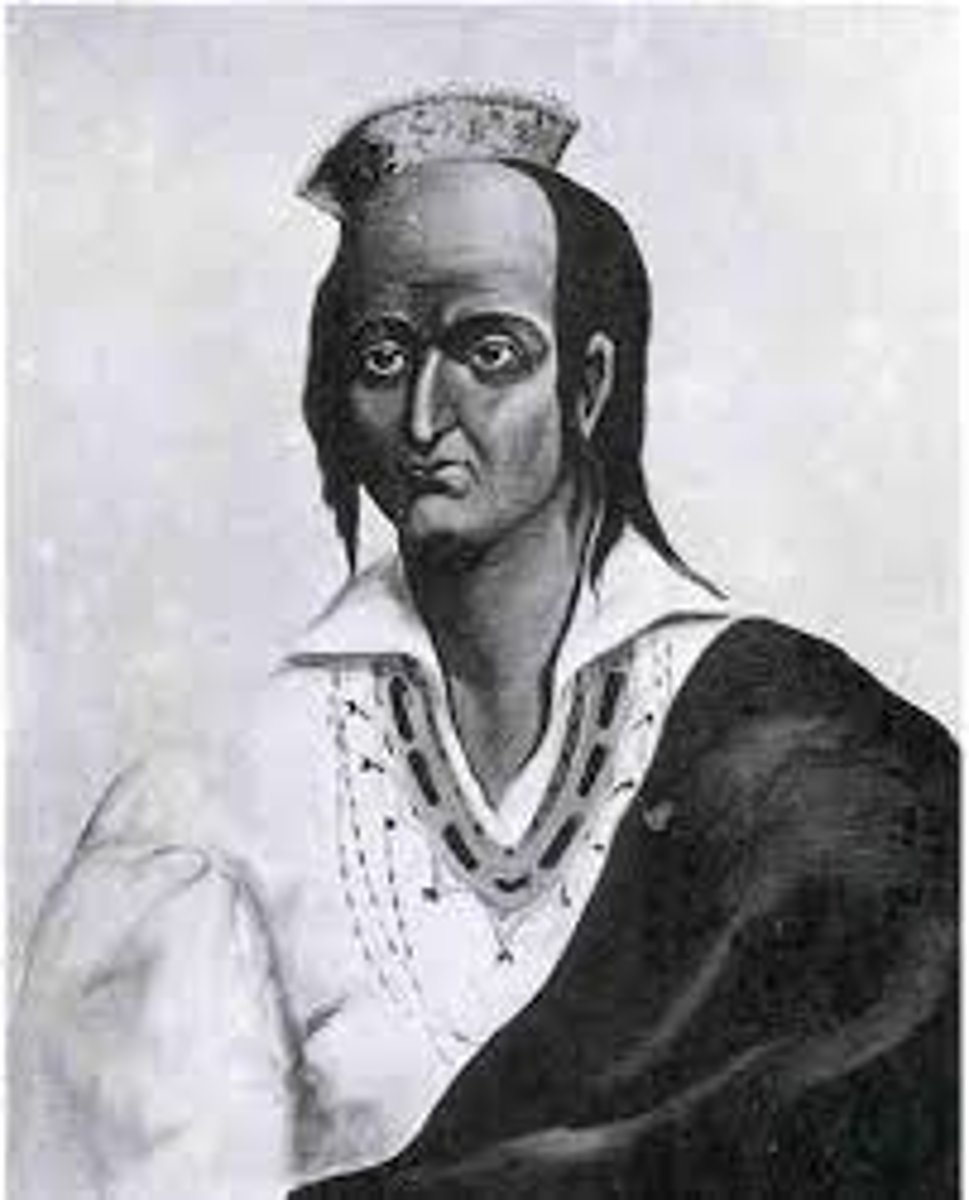
King Philip's War
From 1675 to 1676, the American Indian chief Metacom (King Philip), waged a vicious war against the English settlers in southern New England. (p. 31)
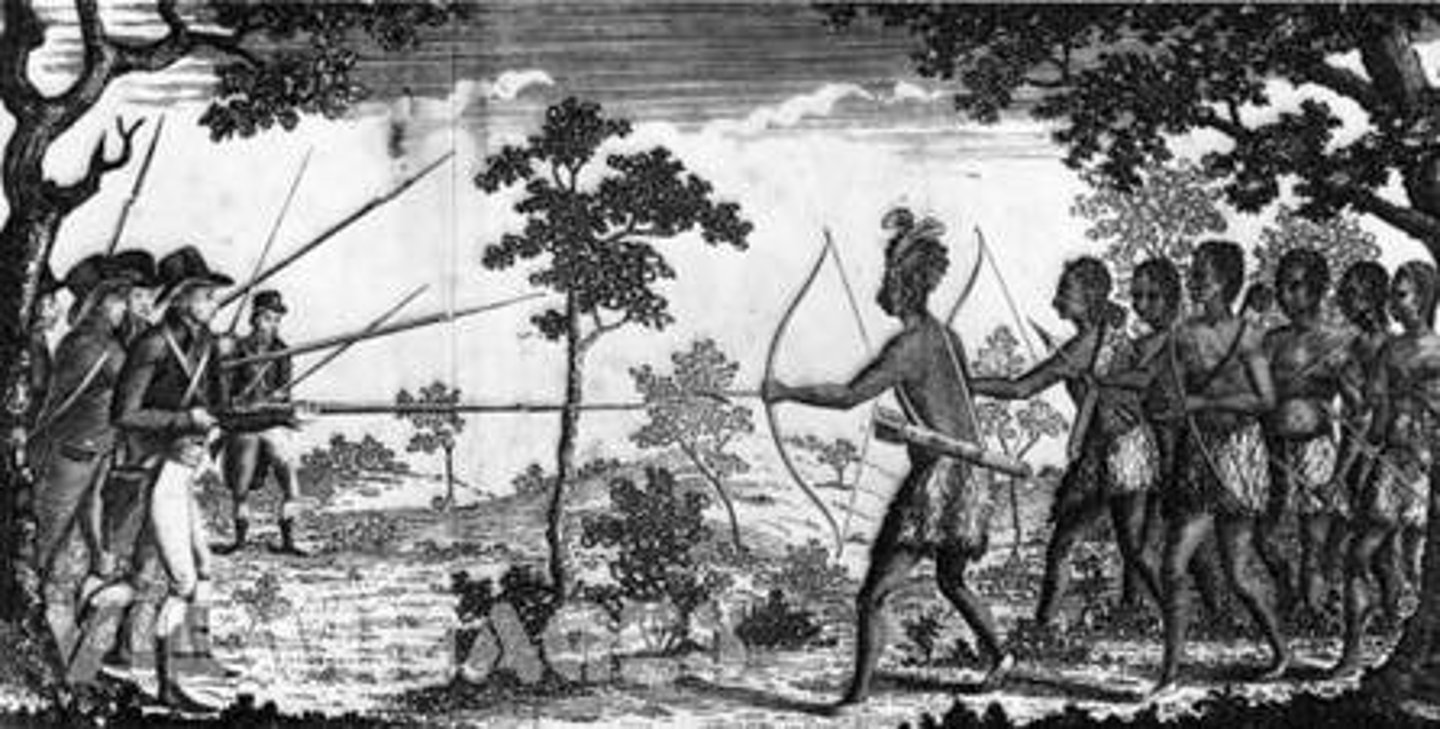
Mayflower Compact
In 1620, while they were sailing to America on the Mayflower, the Pilgrims created this document that pledged them to make decisions by the will of the majority. It was a rudimentary written constitution. (p. 27)
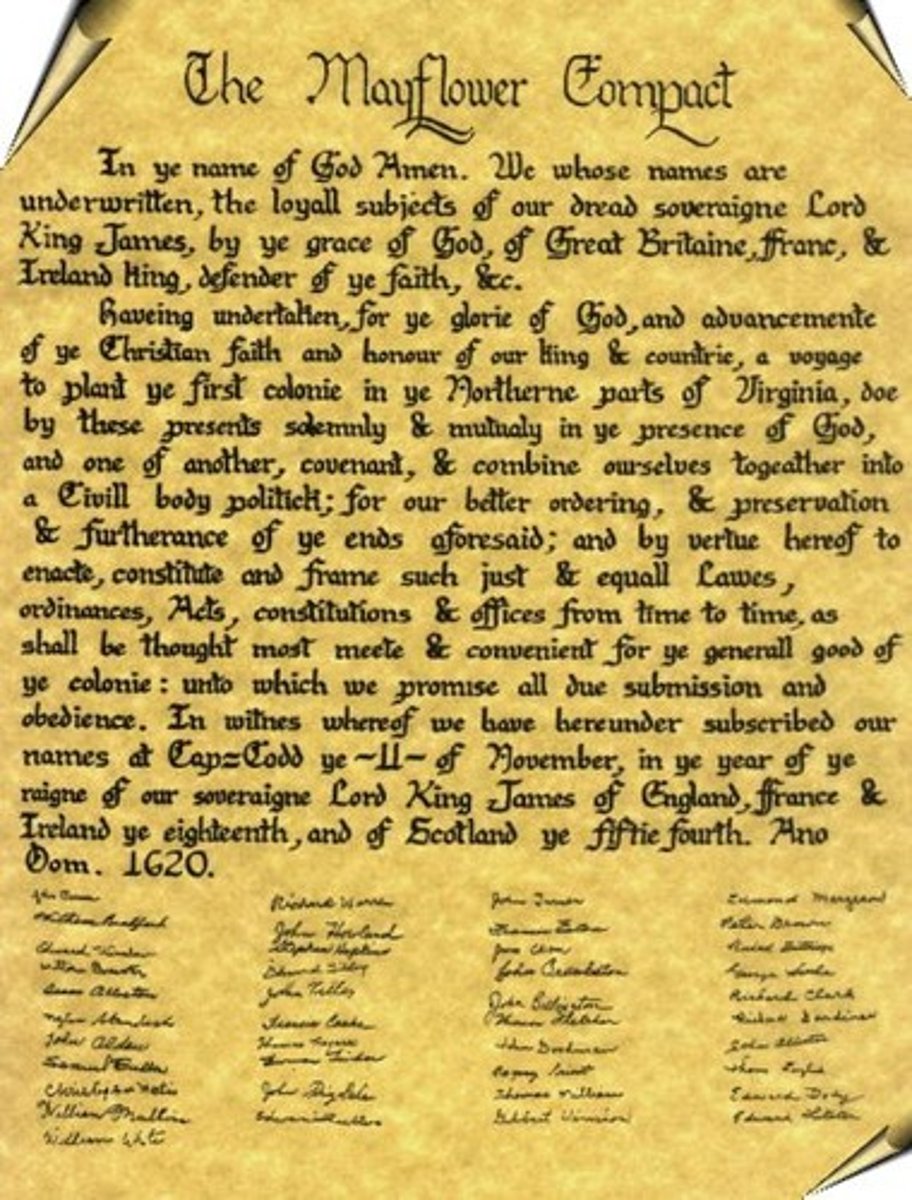
House of Burgesses
In 1619, just 12 years after the founding of Jamestown, Virginia's colonists organized the first representative assembly in America
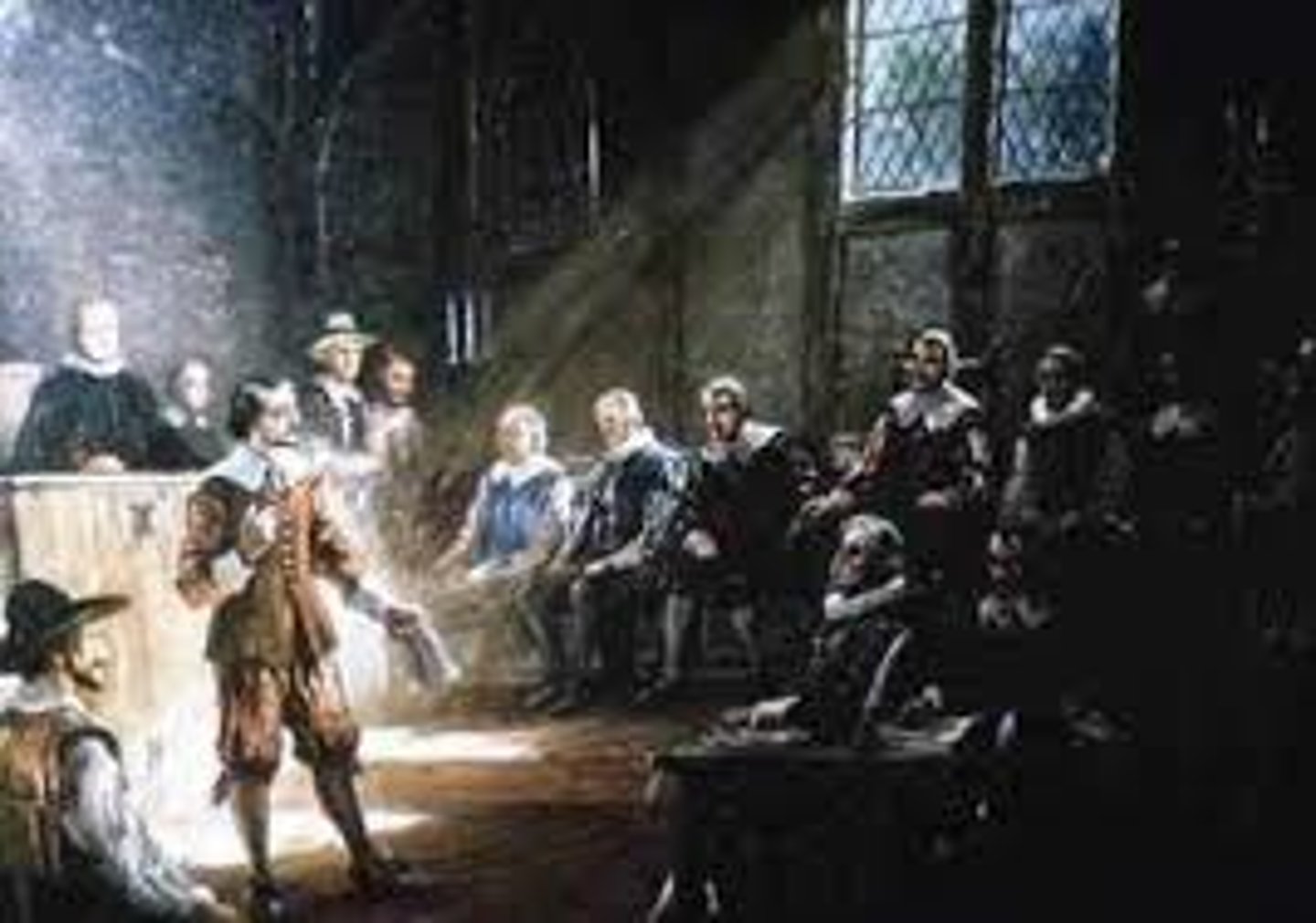
Sir William Berkeley
Royal Governor of Virginia who favored large plantation owners and did not support or protect smaller farms from Indian raids. He put down Bacon's rebellion in 1676. (p. 29)
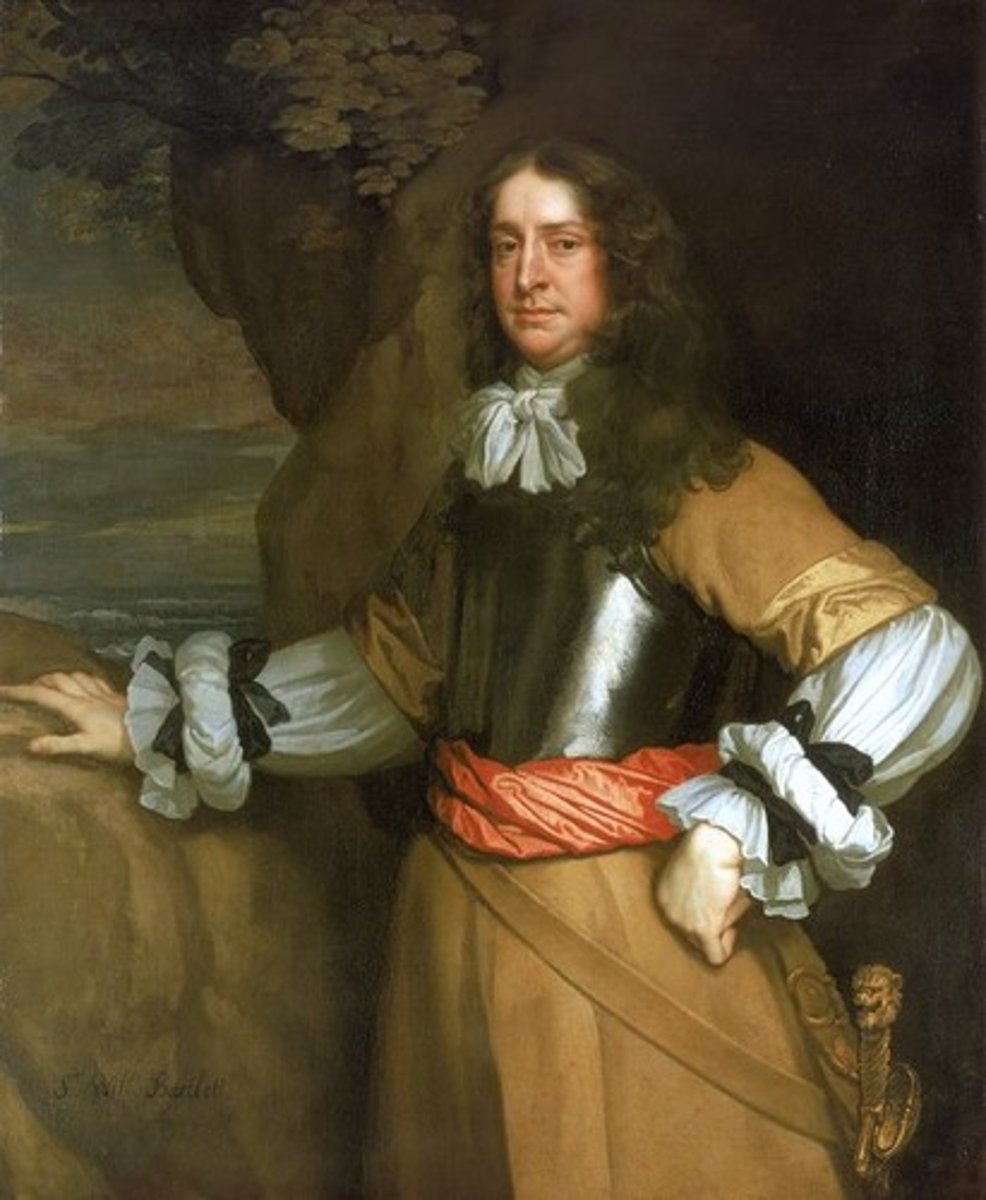
Bacon's Rebellion
In 1676, Nathaniel Bacon led a group of army volunteers that raided Native American villages, fought the governor's forces, and set fire to Jamestown. The rebellion was caused by the Governor's unfair favoritism of large plantation owners and refusal to protect small farms from Native American raids. (p. 29)
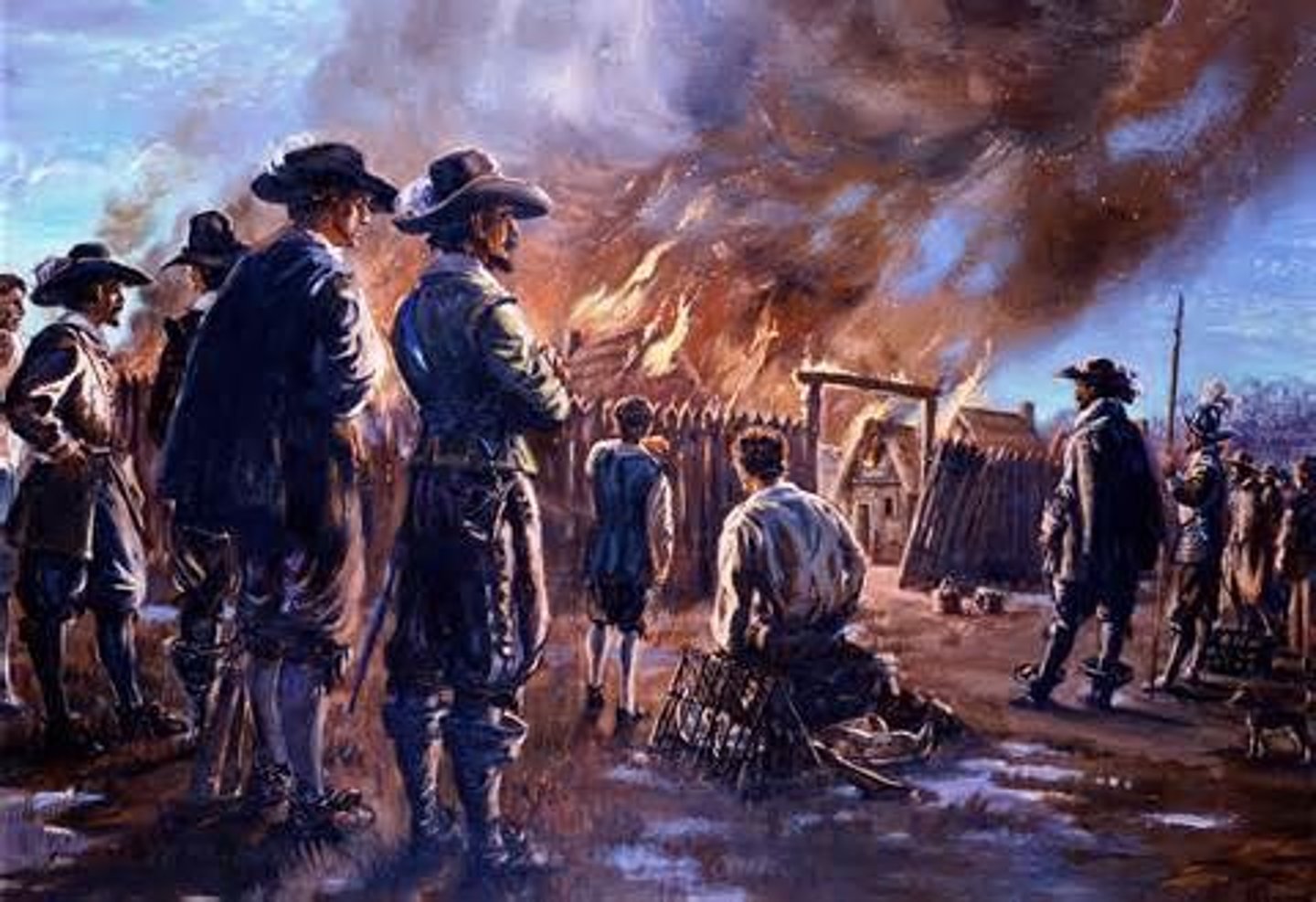
Fundamental Orders of Connecticut
In 1639, the Hartford settlers drew up the first written constitution in America. It established a representative government made up of a legislature elected by the people and a governor chosen by the legislature. (p. 30)
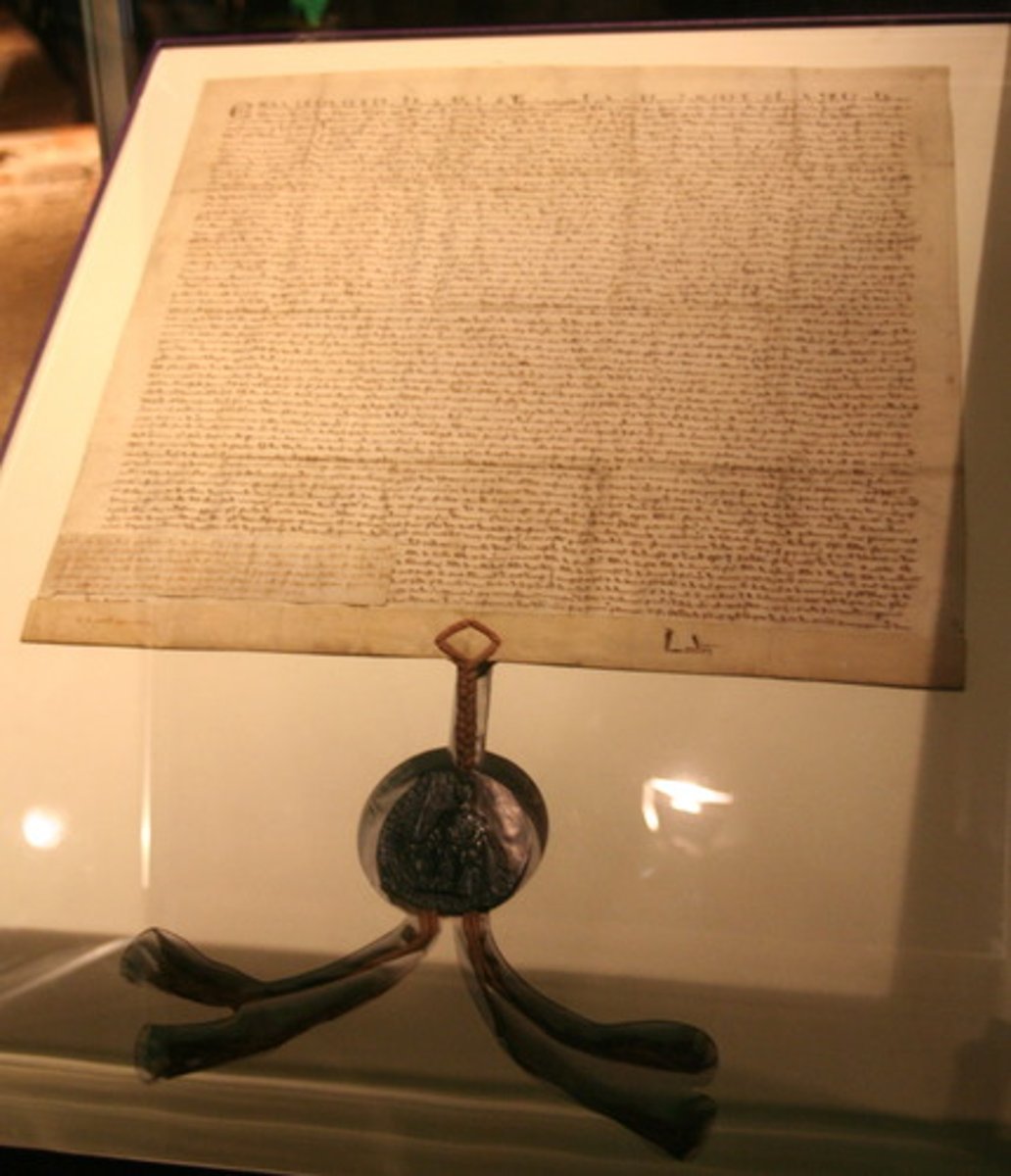
New England Confederation
In 1643, Plymouth, Massachusetts Bay, Connecticut, and New Haven colonies formed a military alliance to deal with the threat from the Native Americans. It lasted until 1684. (p. 31)
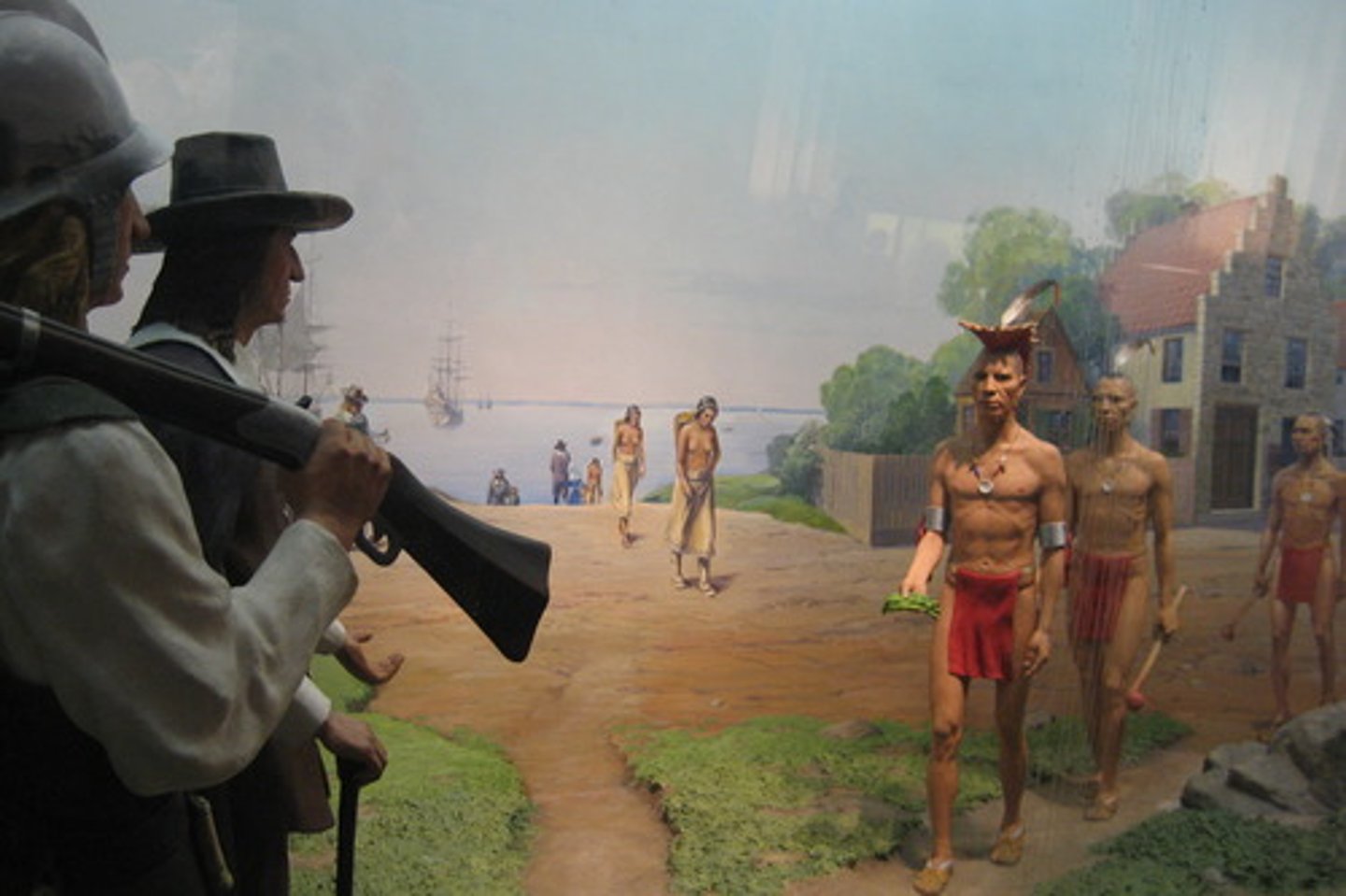
corporate colonies
Colonies operated by joint-stock companies during the early years of the colonies, such as Jamestown. (p. 24)
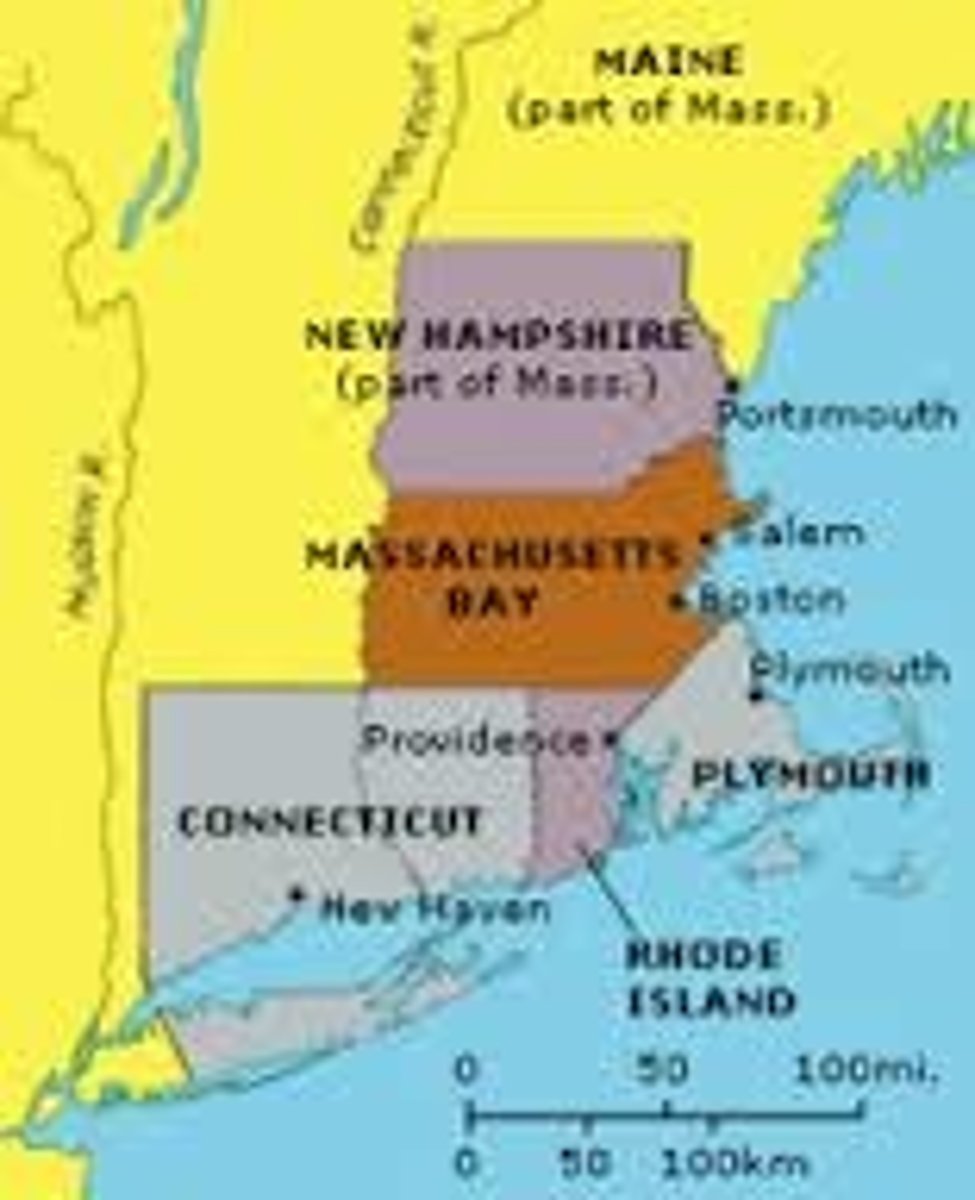
royal colonies
Colonies under the direct authority and rule of the king's government, such as Virginia after 1624. (p. 24)
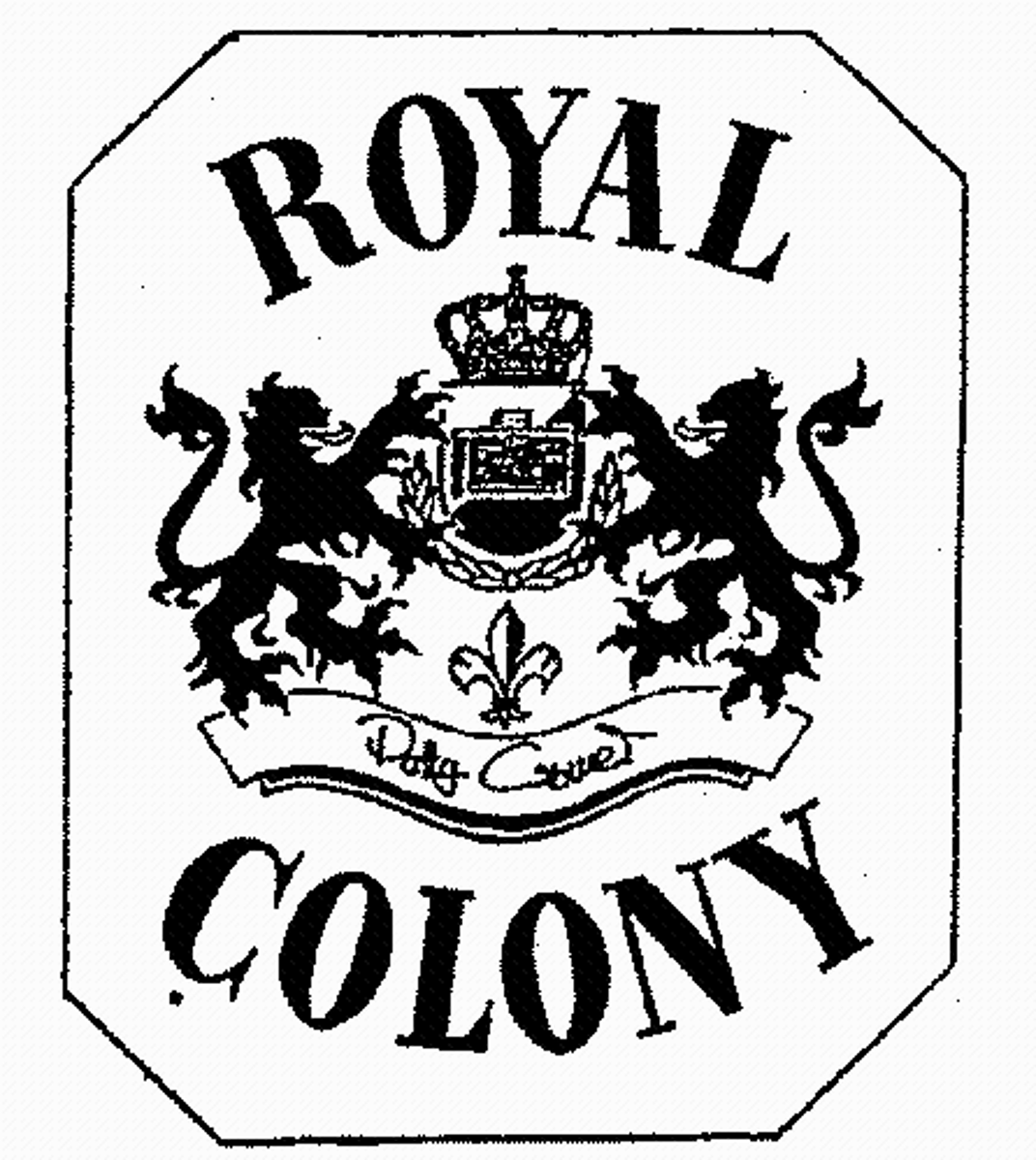
proprietary colonies
Colonies under the authority of individuals granted charters of ownership by the king
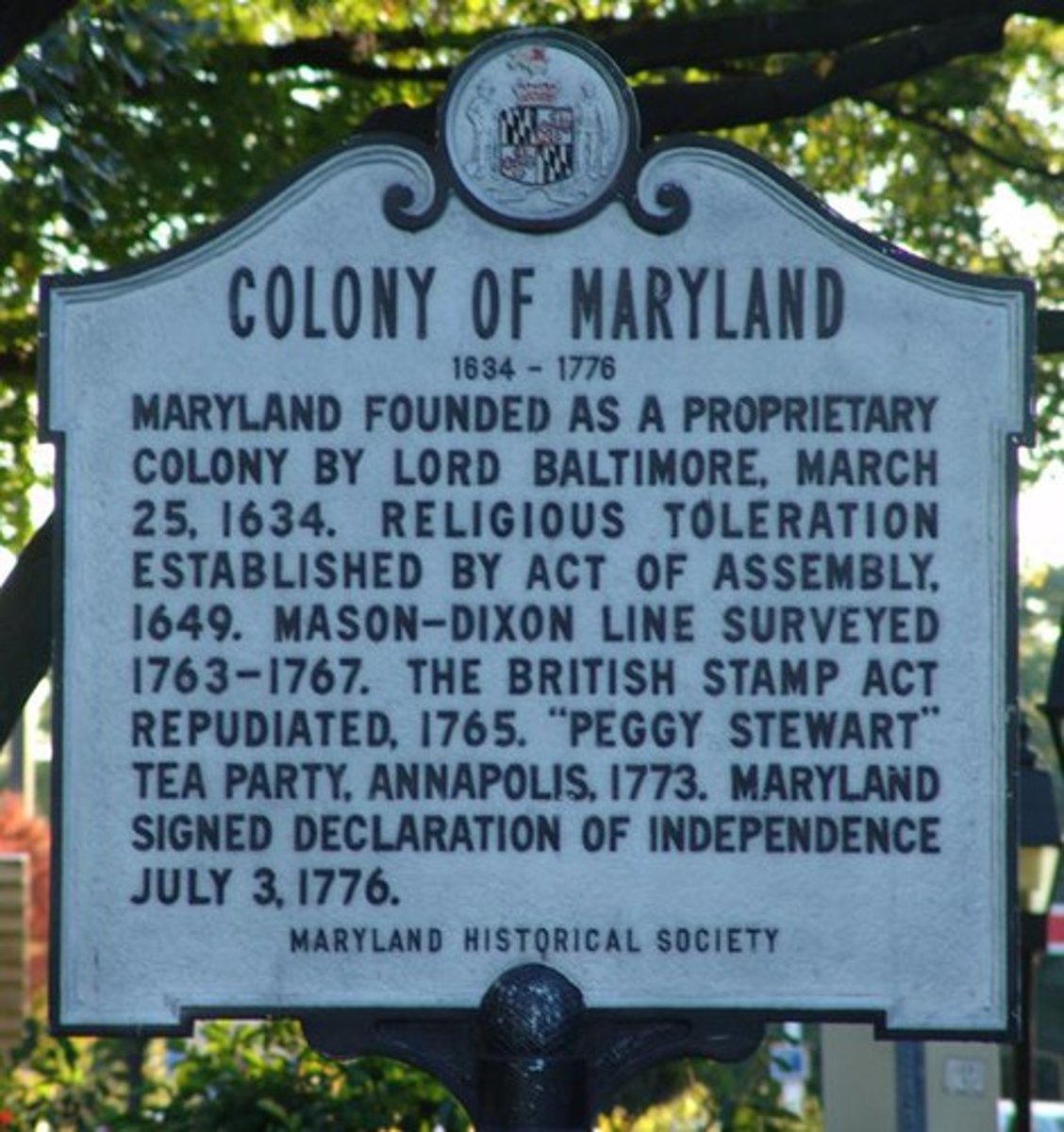
Chesapeake Colonies
In 1632, the area once known as the Virginia colony, has divided into the Virginia and Maryland colony.
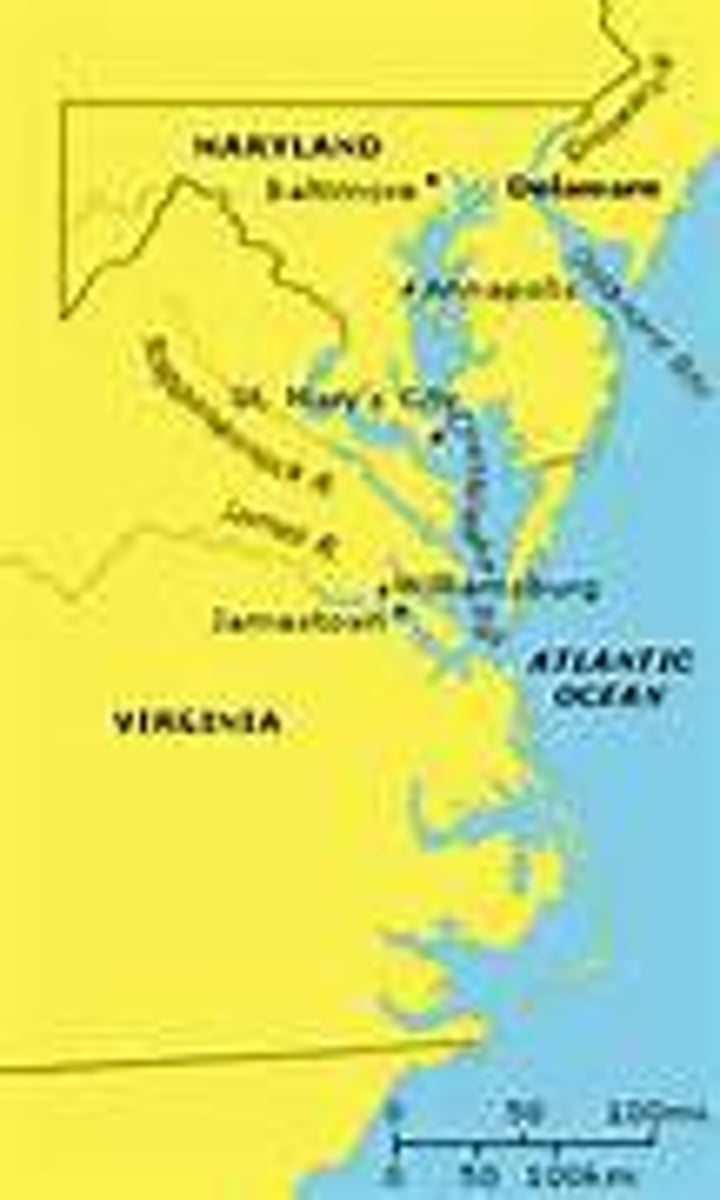
mercantilism
An economic policy in which the colonies were to provide raw materials to the parent country of growth and profit of the parent country. (p. 35)

Navigation Acts
Between 1650 and 1673 England passed a series of acts which establish rules for colonial trade.
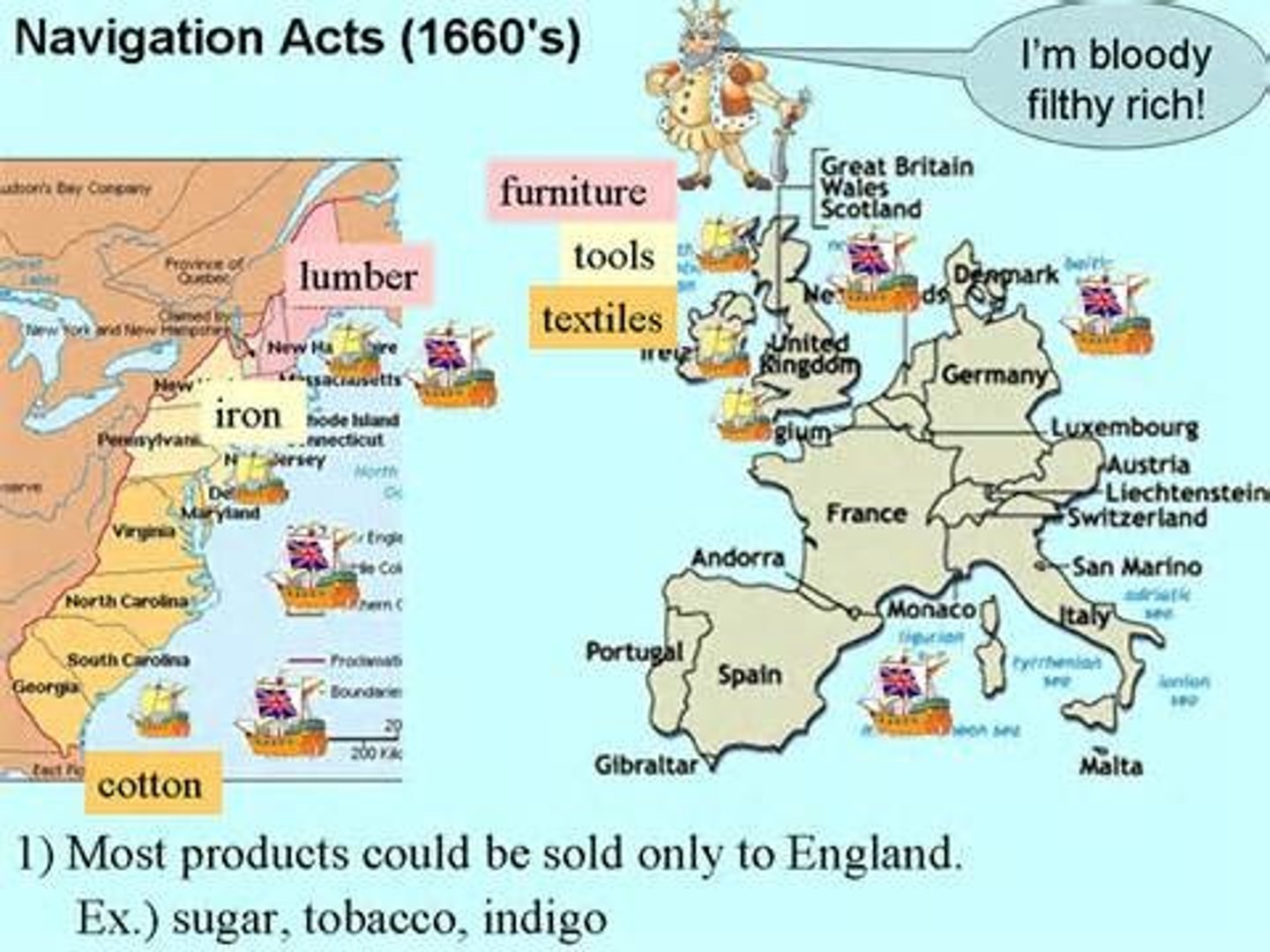
Dominion of New England
James II wanted to increase royal control in the colonies, so he combined them into larger units and abolished their representative assemblies.
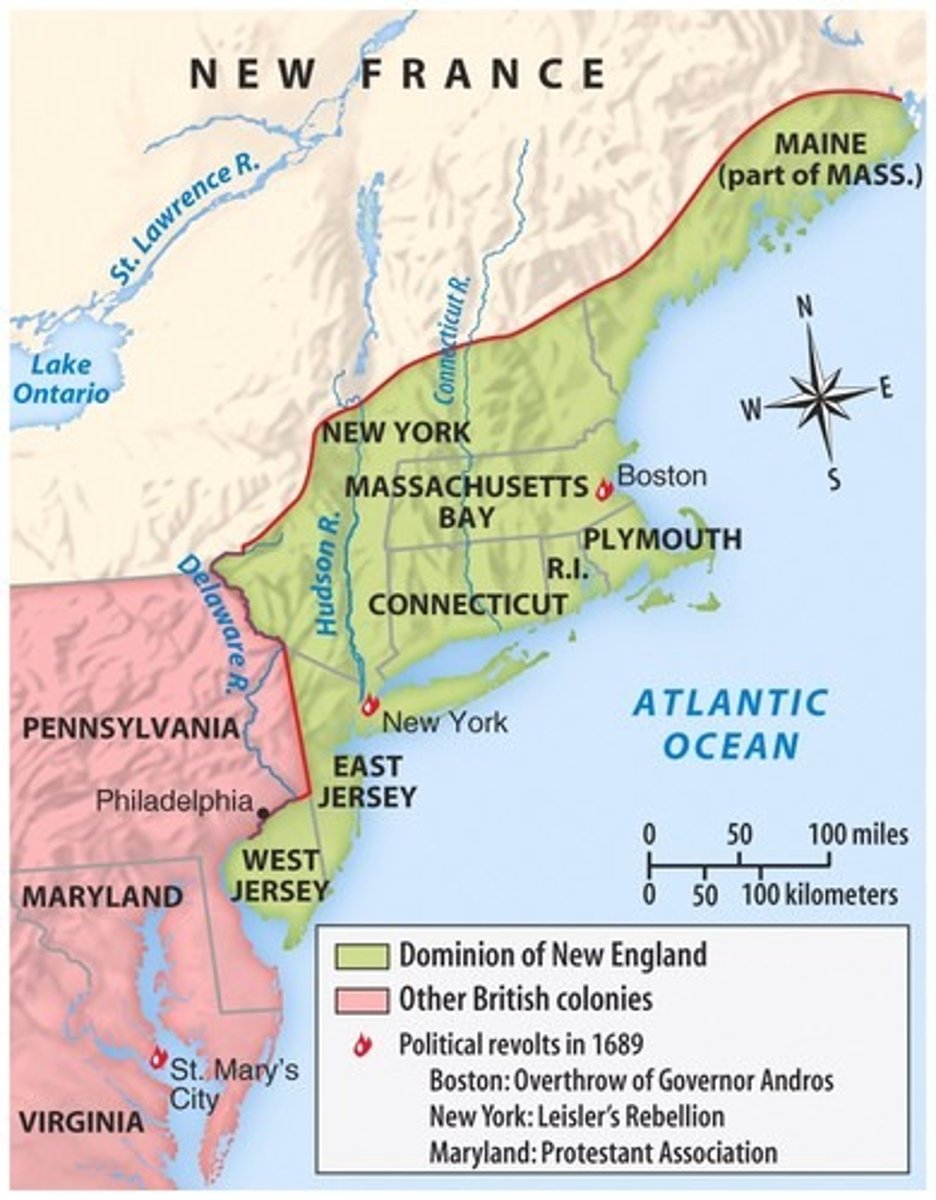
Sir Edmund Andros
He was sent England to govern the dominion of New England. he was very unpopular by levying new taxes, limiting town meetings, and revoking land titles. (p. 36)
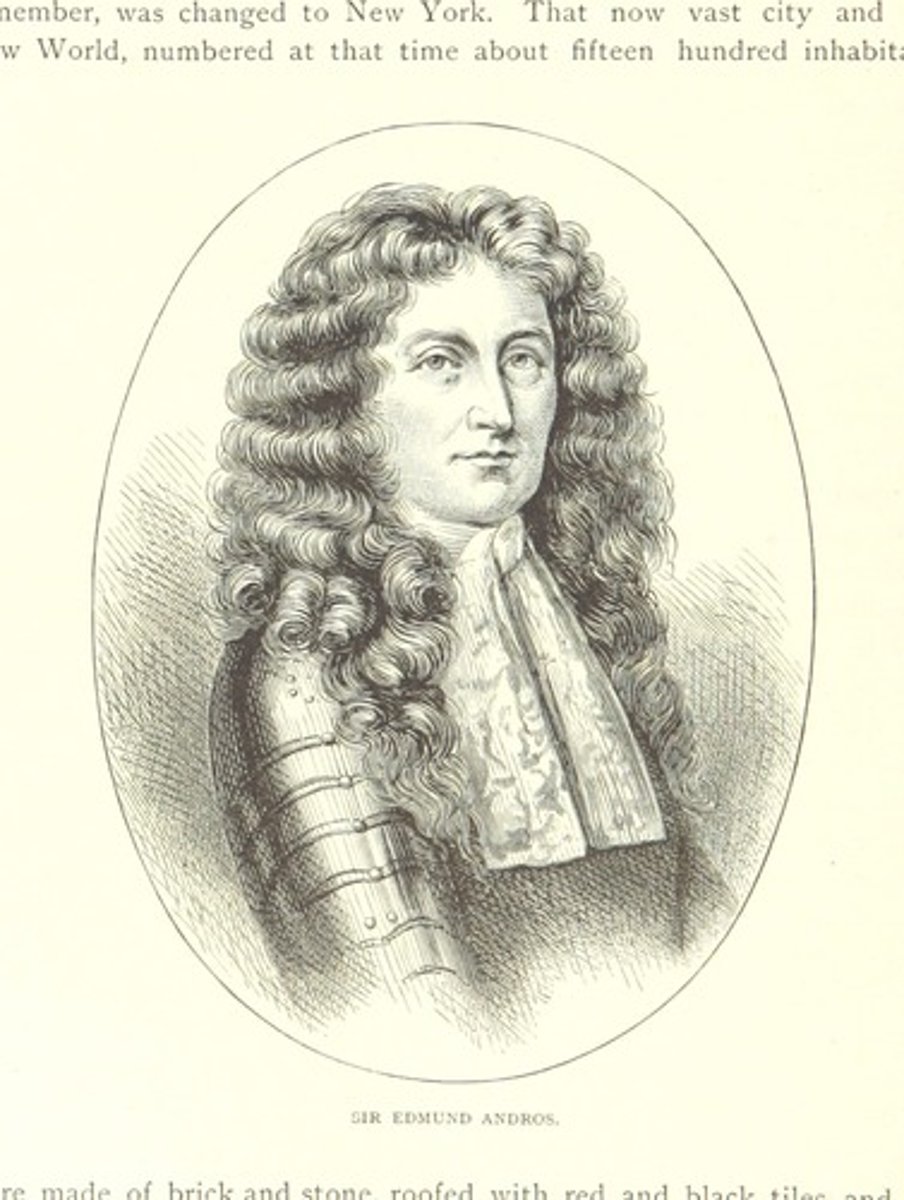
Glorious Revolution
In 1688, King James II was deposed and replaced with William and Mary. This brought the end to the Dominion of New England, and the colonies operated under their previous structure. (p. 37)
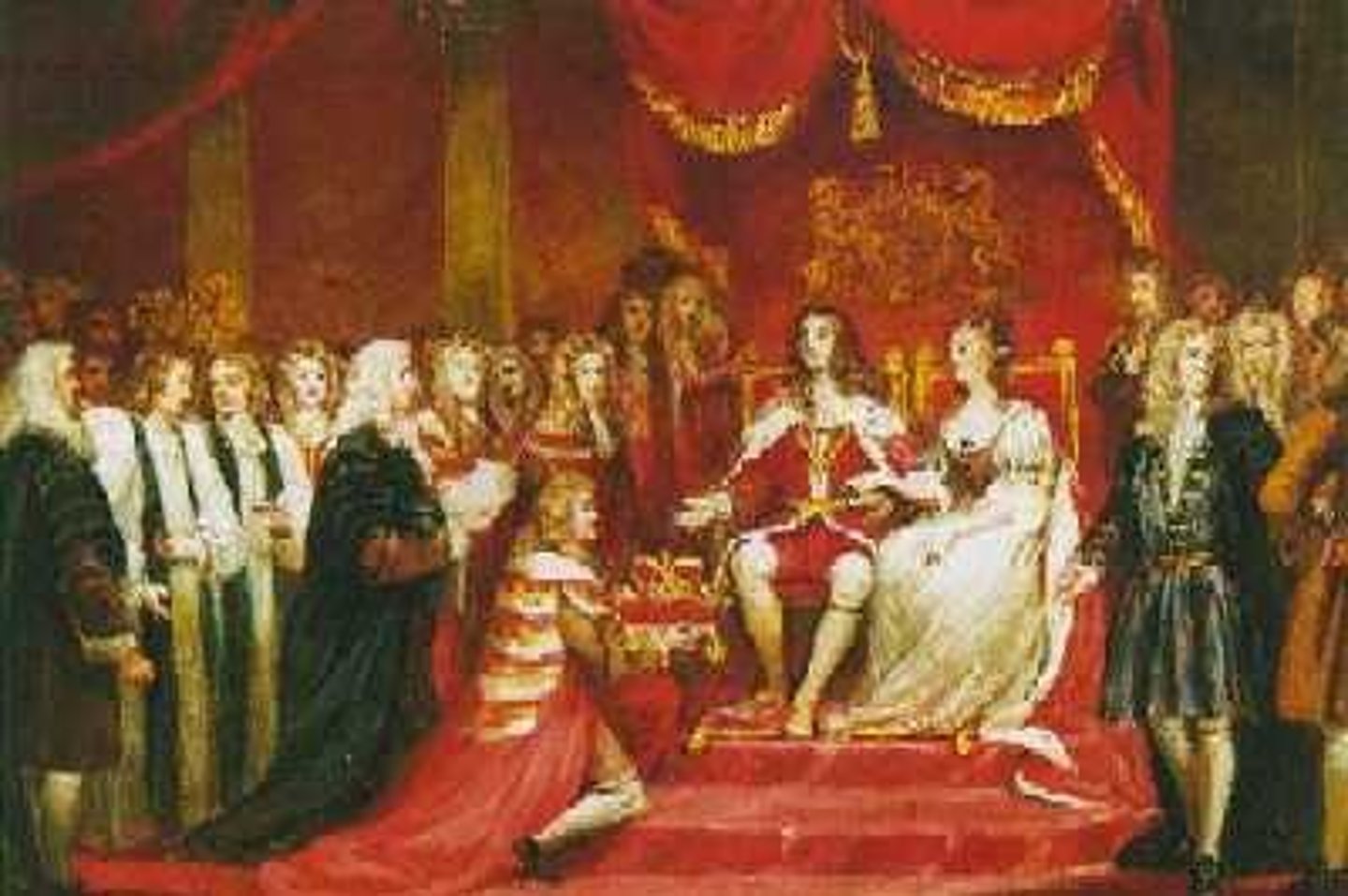
indentured servants
Young people from England under contract with a master who paid for their passage. Worked for a specified period for room and board, then they were free. (p. 28)
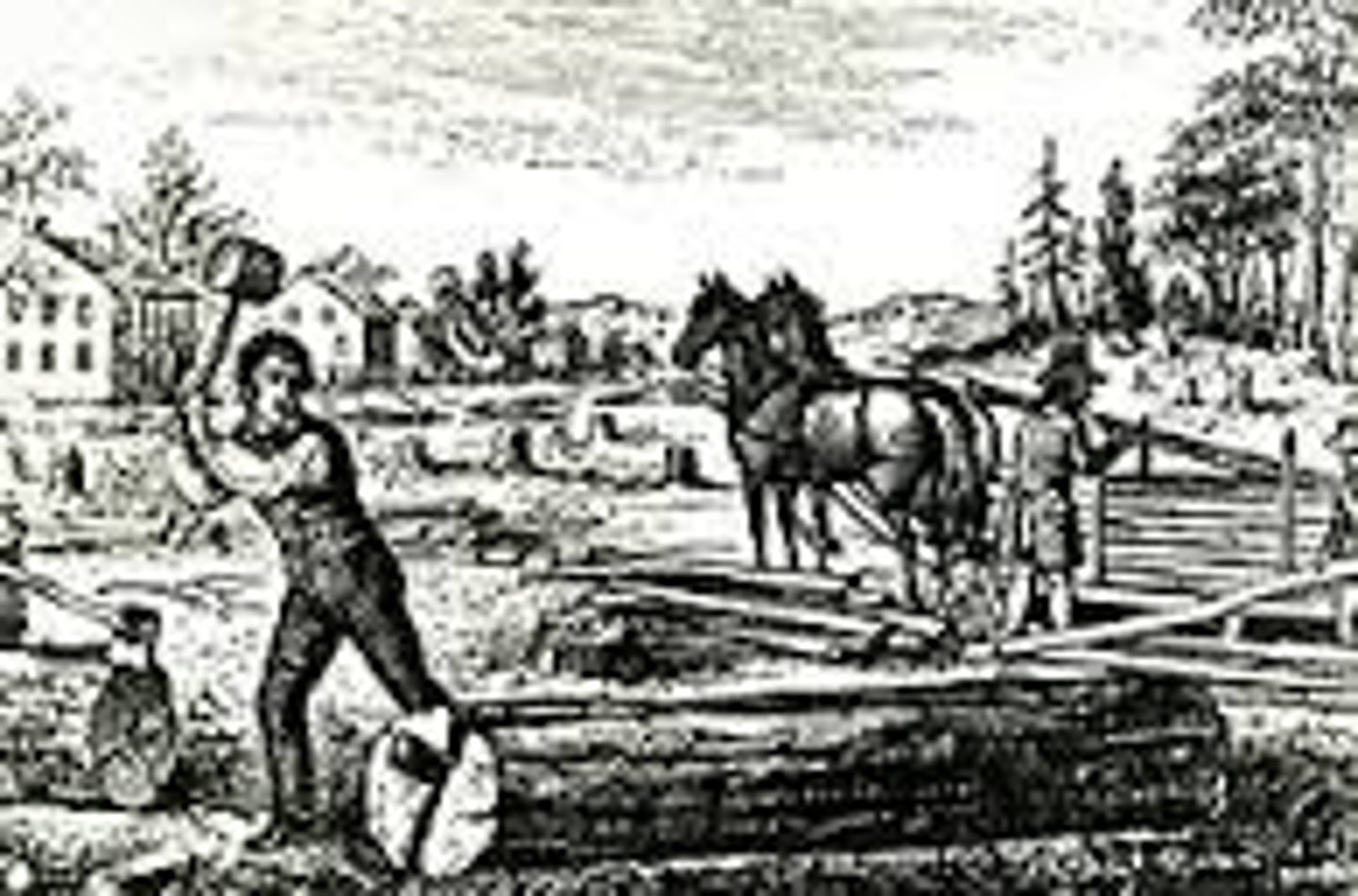
headright system
A method for attracting immigrants, Virginia offered 50 acres of land to each immigrant who paid for passage to America and to any plantation owner who paid for an immigrants passage. (p. 28)
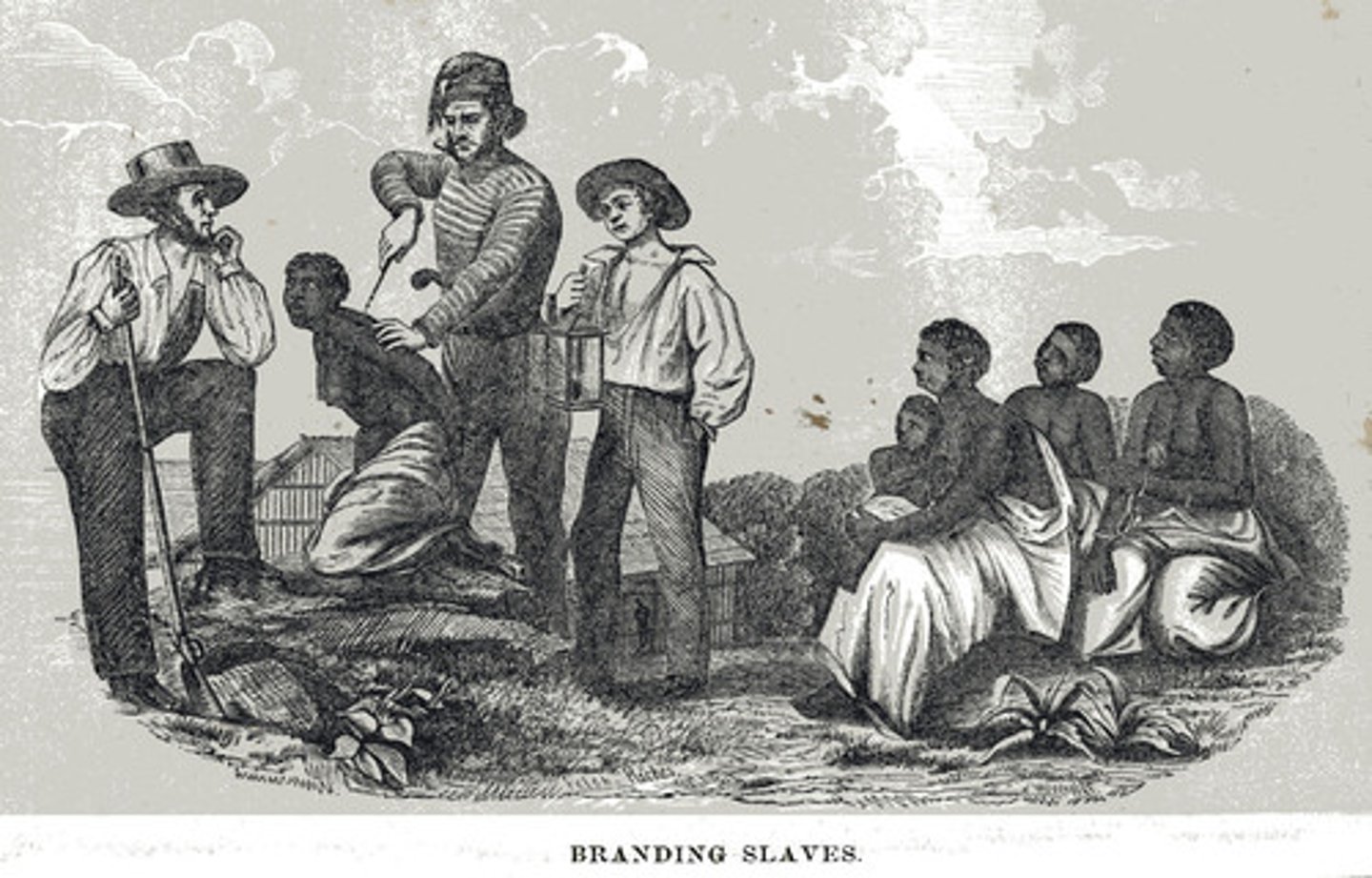
slavery
The first slaves arrived in the colonies in 1619, they were not slaves for life, but worked for a period of time, like an indentured servant.
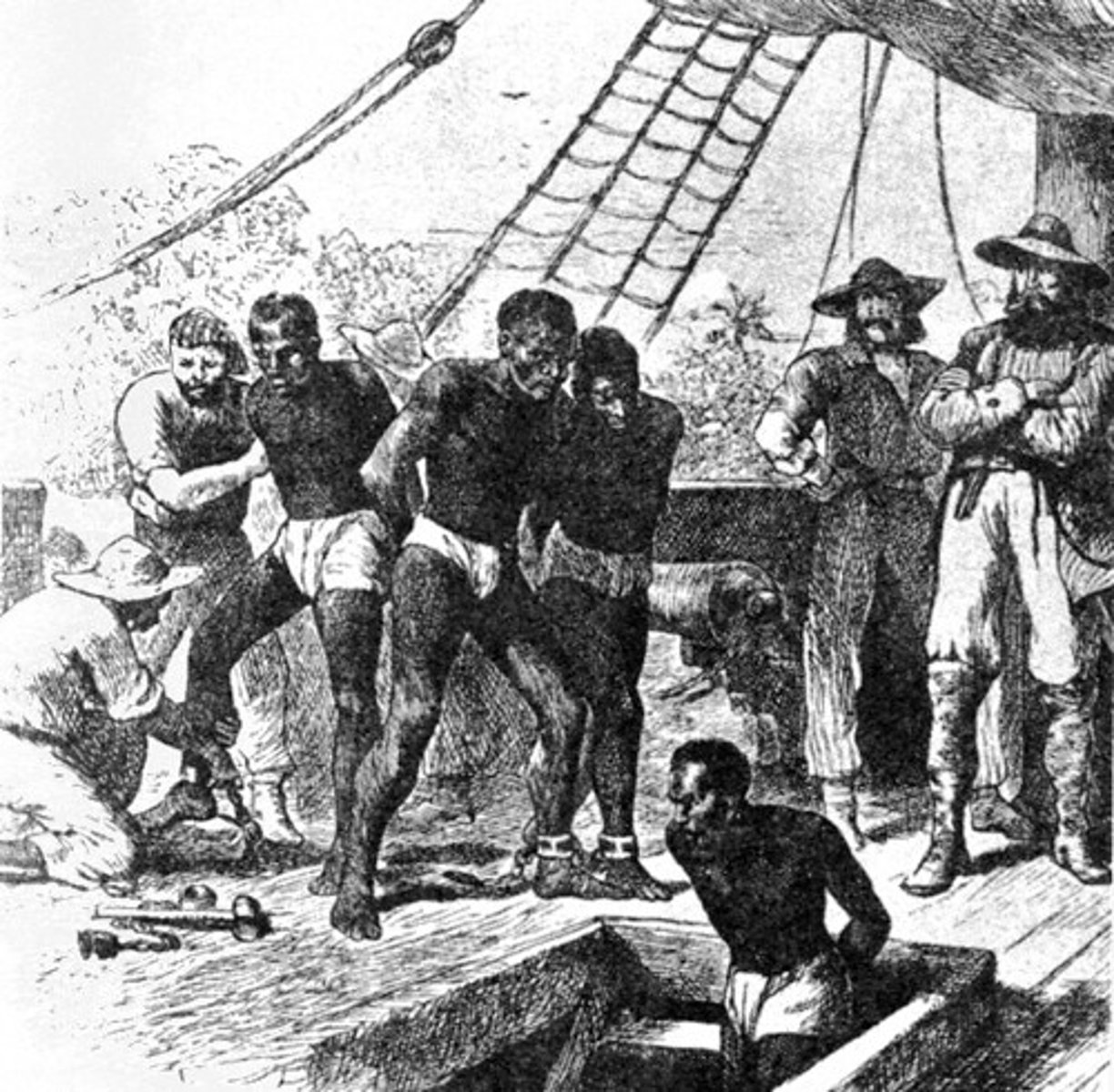
triangular trade
Merchants traded colonist rum for African slaves, African slaves for West Indies sugar cane, and sugar cane was brought back to the colonies to make rum. (p. 37)
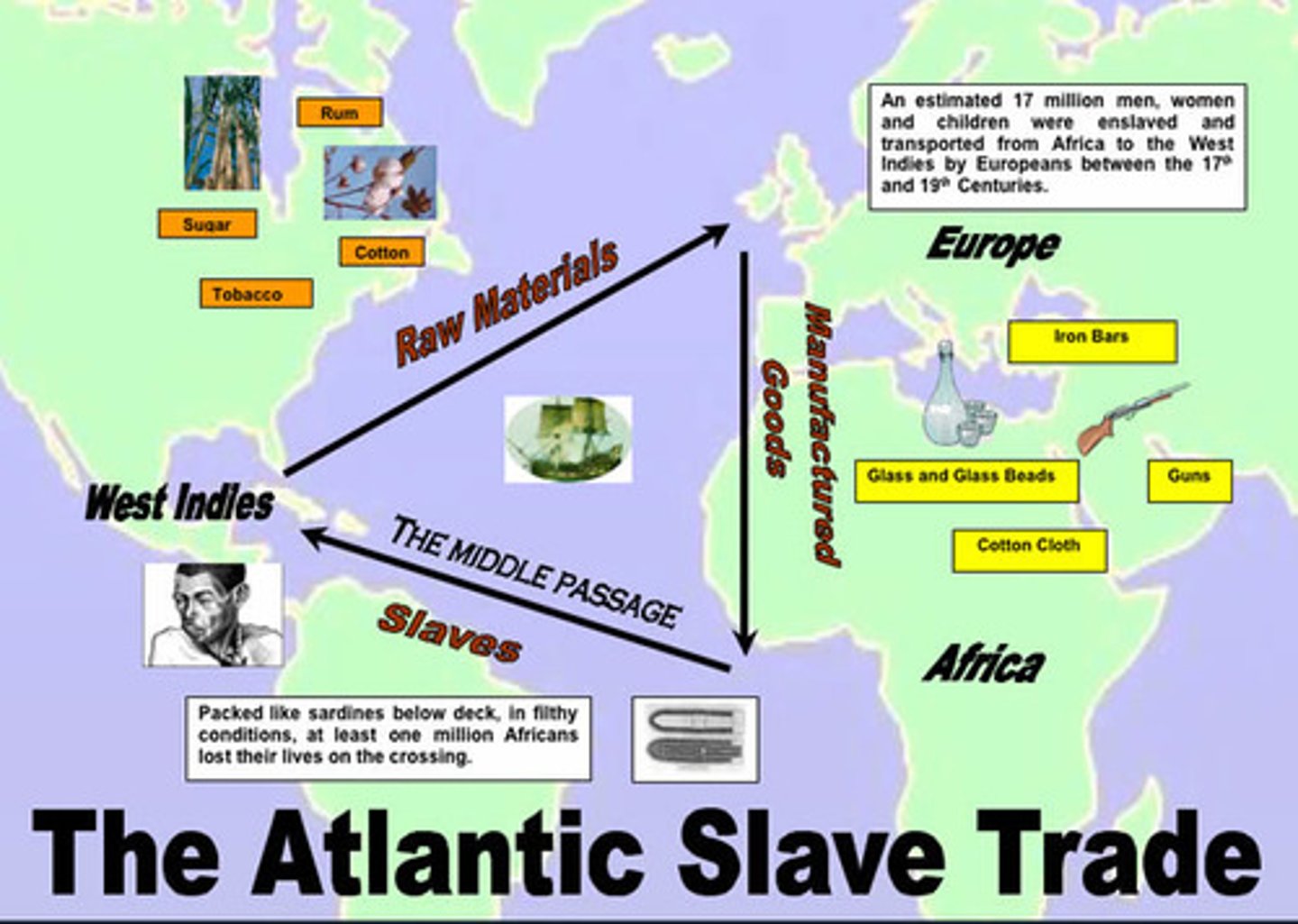
Middle Passage
Voyage from West Africa to the West Indies. It was miserable for the slaves transported and many died. (p. 38)
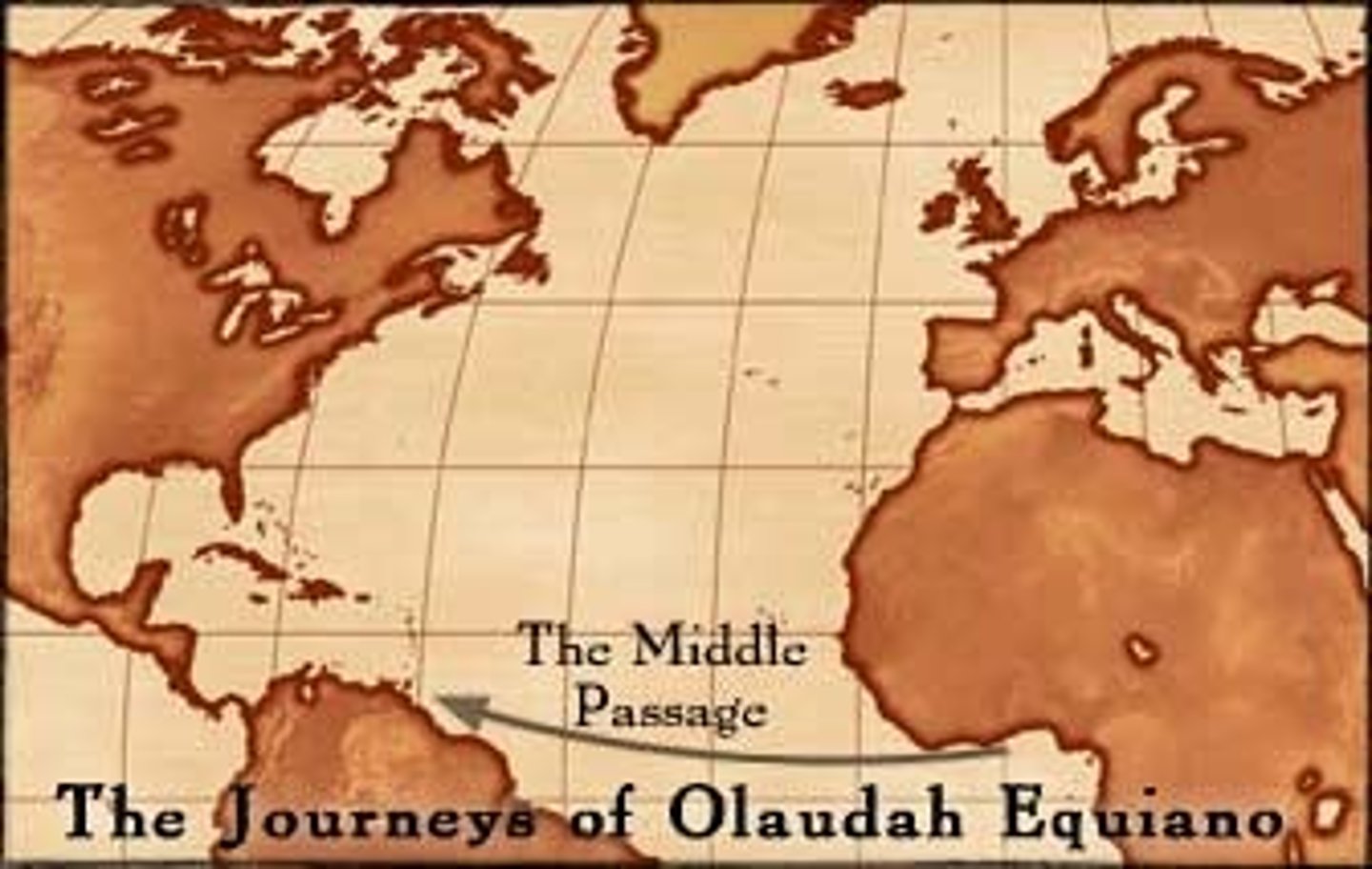
1st permanent English colony in North America
Jamestown in 1607 in Virginia
A joint stock company was set up under..
The Virginia Company
Starving Period
many of the original settlers die of disease, starvation, etc.
What was the cash crop of colonial Virginia?
tobacco
What did the cash crop lead to?
the plantation system
When was colonial Georgia founded and who founded it?
1773 by General James Oglethorpe
What did Georgia serve as?
a buffer colony against Spanish and French threat
What did Georgia originally ban?
slavery
The New England colonies had...
religious motives for colonization.
Other things to know about New England colonies.
Had male & female settlers, tight knit communities, and a mixed economy.
The NE colonies valued
Importance of religion, family, and education (schools required)
Mayflower Compact
signed prior to arrival: agreement established a basic government based upon majority rule.
Governor William Bradford
Governor of Plymouth; abandoned communal living and distributed farmland among families
_____________ became an important part of direct democracy in colonial America (all church going males could participate).
Town Hall Meeting
Roger Williams Called for complete separation of _________and criticized the colonies treatment of Native Americans
church and state
Providence was the first colony with
complete religious freedom
Anne Hutchison challenged____________ by openly speaking out against church leaders.
the accepted role of women within the church
Pequot War (1630's)
New England colonists wipe out Pequot tribe using blankets inff
King Philip's/Metacom's War (1675-1676)
Leader of Wampanoags defeated by colonists.
End of major Native resistance to the New England colonies.
New York was originally a Dutch colony called
New Amsterdam
Mercantilism
colonies to enrich the mother country.
Salutary Neglect
A period from 1607-1763 in which England did not strictly enforce Parliamentary laws, which allowed the colonies to flourish as almost independent states for many years.
Navigation Acts
1. Trade carried only in English or colonial ships
2. Trade had to pass through English ports.
3. Certain enumerated goods from the colonies could be exported only to England (tobacco, etc.)
Stono Uprising, 1739 South Carolina
one of few slave revolts in Colonial America. Slaves tried to get to Florida for freedom
Half Way Covenant (1662)
individuals could become partial church members even if they didn't have a conversion.
Salem Witch Trials: Salem, Massachusetts 1692
19 people hung and 1 pressed to death
Salem Witch Trials reflects __________________(religious to profit driven commercialism).
growing tension over changing nature of the colony
The Great Awakening was a ___________ in the 1730-1740s that spread throughout the colonies
religious revival
What happened to many people during the Great Awakening?
Many people converted and joined local various protestant groups
Jonathan Edwards
Preacher during the First Great Awakening; "Sinners in the hands of angry god"
George Whitefield
introduced a new energized style of evangelical preaching.
New Lights vs. Old Lights
New Lights brought new ideas, rejected by Old Lights; both sought out institutions independent of each other
Examples of colonial self- government
Mayflower Compact, Town Hall Meetings, House of Burgesses, elected representative assemblies, etc.
Zenger case (1733): advanced freedom of the press
-printed a newspaper critical of the royal governor in New York.
- Charged with libel>jury ruled NOT GUILTY
- Could be critical of elected officials if the statements were true.